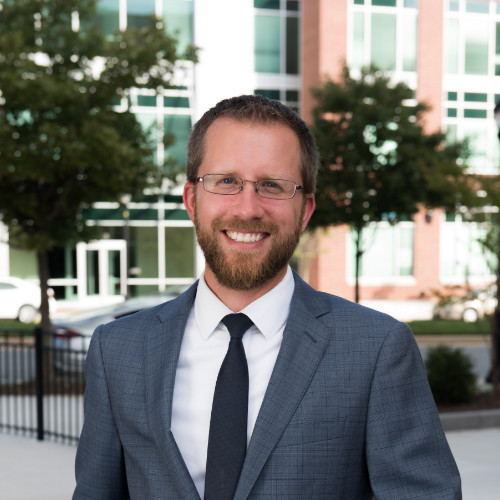 Nicholas Barrick is a Vice President and Discipline Manager for KCI Technologies, Inc.'s Site/Facilities Discipline overseeing Land Development, Building Structures, Landscape Architecture, Land Planning, and Wireless Telecommunications throughout the East Coast. His responsibilities include marketing and business development, operational and financial management, and staff development for the Site/Civil Land Development Practice, Building Structures Practice, Landscape Architecture, Land Planning Practice, and the Wireless Telecommunications Practice.
Nicholas Barrick is a Vice President and Discipline Manager for KCI Technologies, Inc.'s Site/Facilities Discipline overseeing Land Development, Building Structures, Landscape Architecture, Land Planning, and Wireless Telecommunications throughout the East Coast. His responsibilities include marketing and business development, operational and financial management, and staff development for the Site/Civil Land Development Practice, Building Structures Practice, Landscape Architecture, Land Planning Practice, and the Wireless Telecommunications Practice.
He is an active board member with the Howard County Chamber of Commerce Young Professionals Network, Chair of the Howard Community College fundraising committee, active committee member for Leadership Howard County, an active member with the Urban Land Institute Baltimore Chapter, and a reoccurring judge for the University of Maryland Civil Engineering capstone course.
Outside of work, he is an avid marathon runner, father of three boys (14, 12, and 4) and an Assistant Scoutmaster for his son's Scout Troop in Catonsville, MD. Barrick is currently finishing his MBA with Loyola University with a concentration in management.
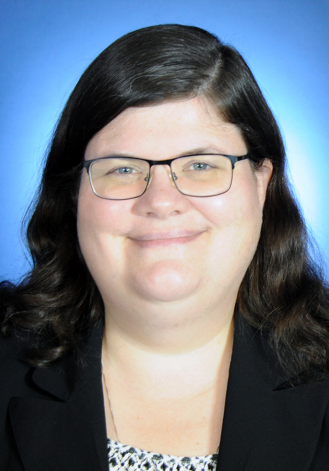 Megan R. Bock is the payload systems engineer for NASA’s On-orbit Servicing, Assembly, and Manufacturing 1 (OSAM-1) Servicing Payload. In this role, she serves as technical lead for a first-of-its-kind payload that will demonstrate autonomous satellite rendezvous and robotic servicing capabilities.
Megan R. Bock is the payload systems engineer for NASA’s On-orbit Servicing, Assembly, and Manufacturing 1 (OSAM-1) Servicing Payload. In this role, she serves as technical lead for a first-of-its-kind payload that will demonstrate autonomous satellite rendezvous and robotic servicing capabilities.
Bock began her career at NASA’s Goddard Space Flight Center in 2006 as a contractor in the Carriers Development Office. There, she supported several International Space Station and Space Shuttle payloads, notably working as a mechanical systems engineer for the final Hubble Space Telescope servicing mission, STS-125. From 2009-2010, Bock continued her growth in mechanical analysis, supporting programs with subsystem and instrument level analyses. In 2011, she joined the ICESat-2/Advanced Topographic Laser Altimeter System (ATLAS) team as an instrument systems engineer responsible for developing and evaluating algorithms for the instrument’s primary observations. Following ATLAS’s 2018 launch, Bock joined the ICESat-2 project science office and continued to maintain these algorithms while acting as the primary liaison to the ground processing team and implementing them for the National Snow and Ice Data Center. Bock became a civil servant and joined OSAM-1 in 2019.
A member of Goddard’s Instrument & Payload Systems Branch, Bock received her B.Sc. and M.Eng. in aerospace engineering from the University of Maryland. She is an instructor for GSFC’s Product Development Lead training program, educating Goddard’s next generation of PDLs in systems architecture and requirements development. She is also the recipient of several NASA group achievement and individual peer awards.
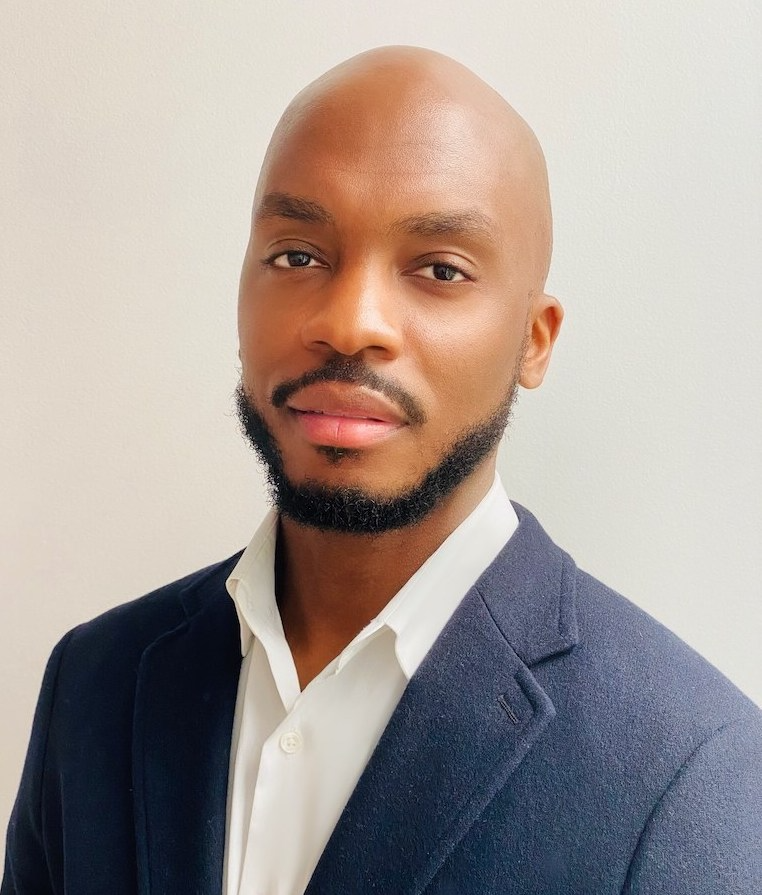 Lyndon Brown is an experienced technology executive focused on building high-growth cybersecurity companies. At Pondurance, as Chief Strategy Officer, he is responsible for Product Management, Corporate Development, Marketing, and driving cross-functional performance. Prior to joining Pondurance, Lyndon served as Vice President of Business Development at Mandiant (acquired by Google) where he focused on strategic growth initiatives. As an executive, Lyndon has successfully led product management, M&A, and global partnerships at firms such as Verodin (acquired by FireEye) and Endgame (acquired by Elastic).
Lyndon Brown is an experienced technology executive focused on building high-growth cybersecurity companies. At Pondurance, as Chief Strategy Officer, he is responsible for Product Management, Corporate Development, Marketing, and driving cross-functional performance. Prior to joining Pondurance, Lyndon served as Vice President of Business Development at Mandiant (acquired by Google) where he focused on strategic growth initiatives. As an executive, Lyndon has successfully led product management, M&A, and global partnerships at firms such as Verodin (acquired by FireEye) and Endgame (acquired by Elastic).
Driven to prevent another 9/11, Lyndon turned down Wall Street job offers and spent the first 10 years of his career as a Computer Engineer in the U.S. Intelligence Community. He holds a Bachelor of Science in Electrical Engineering from the University of Maryland where he was actively involved in the National Society of Black Engineers. Lyndon continued his education at Johns Hopkins University where he earned a Master of Science in Systems Engineering.
As a teenager, Lyndon taught himself to code, started high school a year early, and built the original web application behind HistoryCentral.com. He secured highly-coveted internships at IBM and Sikorsky Aircraft, where he programmed avionic systems for military helicopters.
Lyndon’s current board responsibilities include serving on the advisory board of the University of Maryland's Department of Electrical and Computer Engineering (ECE), Forbes Business Development Council, Fast Company Executive Board and previously the National Retail Federation’s Cybersecurity Board.
Lyndon actively advocates for STEM education for both students and underrepresented groups through a variety of non-profit organizations.
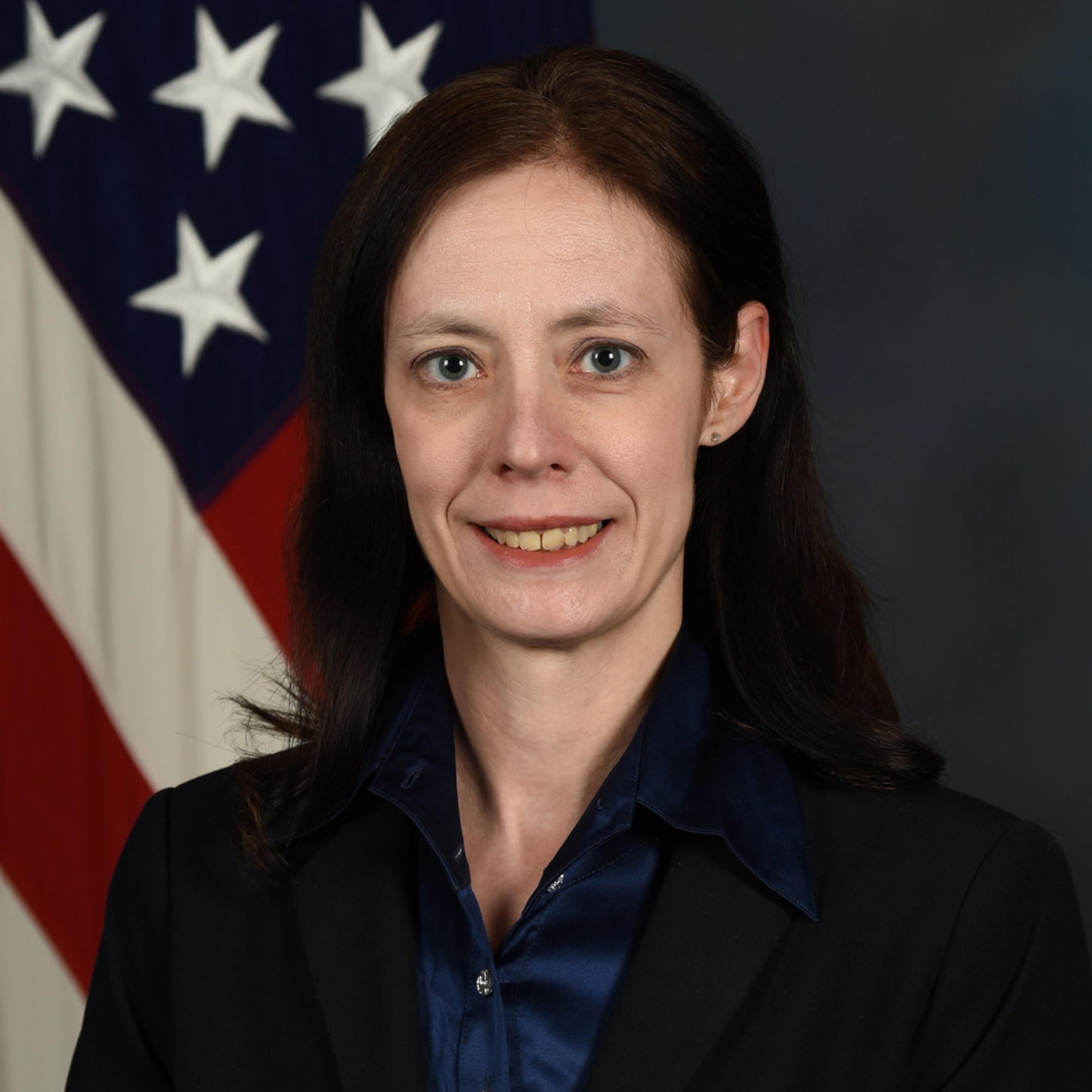 Gillian Bussey, Ph.D., is currently a special assistant to the US Air Force Chief Scientist advising on S&T matters.
Gillian Bussey, Ph.D., is currently a special assistant to the US Air Force Chief Scientist advising on S&T matters.
Prior to April 2022, she was the inaugural director of the Joint Hypersonics Transition Office (JHTO) in the Office of the Undersecretary of Defense, Research, and Engineering. The JHTO is responsible for integrated S&T roadmap for hypersonics, working with foreign allies, setting up a university consortium in the field of hypersonics, and providing oversight of DoD hypersonics programs. She set up the office in April 2020 according to Congressional direction and oversees a $90 million budget and fourteen people.
She was a special advisor to the Assistant Director, Hypersonics as a detailee advising DoD on hypersonics weapons, technologies, and missile defenses from June 2018 to April 2020. As acting director for Aerospace Technologies from July 2019 to February 2020, she was responsible for overseeing DoD activities in air platforms and related propulsion. She spent six months at the Defence Science Technology Group (DSTG)’s Applied Hypersonics Branch near Brisbane, Australia in 2015 supporting the HIFIRE program and DSTG hypersonics.
She was CIA’s hypersonics systems and technologies analyst from 2011 to 2018. She analyzed flight data from hypersonic systems and air-launched weapons from 2007 to 2012.
She has degrees in physics and political science from the Massachusetts Institute of Technology (2005) and a M.S. and Ph.D in aerospace engineering from the University of Maryland, College Park (2009, 2012). While at the UMD, her research focused on hypersonics. She is an AIAA associate fellow.
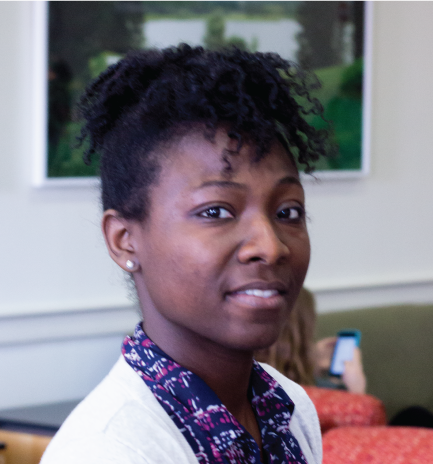 Kailyn Cage, Ph.D. is a Research Hardware Development Engineer at Amazon Lab126. She joined Lab126 in June of 2018 and has held a few different roles in the Hardware Engineering organization. Most recently, Dr. Cage returned to her roots as a Research Scientist. She focuses on new technology integration through experimental design, data collection and analysis for safety compliance. A foundational principle in Dr. Cage’s life is the philosophy of “Paying it Forward.” Her natural inclination for giving back is critical to the holistic advancement of society. This purview was imperative to the model framework that led to the Amazon Lab126 and University of Maryland, College Park (UMD) partnership with the initial pinnacle being the Lab126 Robotics Fellowship for minority graduate students. Dr. Cage holds three Mechanical Engineering related degrees, including a BS, MS, and PhD from UMD (BS, PhD) and The Ohio State University (MS), respectively. Her academic research investigated the intersection between product design and manufacturing, functional requirements, machine learning, and biomechanics. She completed her doctoral requirements in 2017 where her work introduced the concept “Interaction Variability.” Dr. Cage was recently promoted for her contributions to Amazon Devices Global Safety organization and the creation and application of new methodologies for Ultrasound Safety in Robotics and Design Driven FMEA’s for customers and safety. In her spare time, Dr. Cage enjoys mentoring young engineers, teaching financial literacy courses for non-profit organization, programming technology, and hosting hackathons (PGCode) for minority youth.
Kailyn Cage, Ph.D. is a Research Hardware Development Engineer at Amazon Lab126. She joined Lab126 in June of 2018 and has held a few different roles in the Hardware Engineering organization. Most recently, Dr. Cage returned to her roots as a Research Scientist. She focuses on new technology integration through experimental design, data collection and analysis for safety compliance. A foundational principle in Dr. Cage’s life is the philosophy of “Paying it Forward.” Her natural inclination for giving back is critical to the holistic advancement of society. This purview was imperative to the model framework that led to the Amazon Lab126 and University of Maryland, College Park (UMD) partnership with the initial pinnacle being the Lab126 Robotics Fellowship for minority graduate students. Dr. Cage holds three Mechanical Engineering related degrees, including a BS, MS, and PhD from UMD (BS, PhD) and The Ohio State University (MS), respectively. Her academic research investigated the intersection between product design and manufacturing, functional requirements, machine learning, and biomechanics. She completed her doctoral requirements in 2017 where her work introduced the concept “Interaction Variability.” Dr. Cage was recently promoted for her contributions to Amazon Devices Global Safety organization and the creation and application of new methodologies for Ultrasound Safety in Robotics and Design Driven FMEA’s for customers and safety. In her spare time, Dr. Cage enjoys mentoring young engineers, teaching financial literacy courses for non-profit organization, programming technology, and hosting hackathons (PGCode) for minority youth.
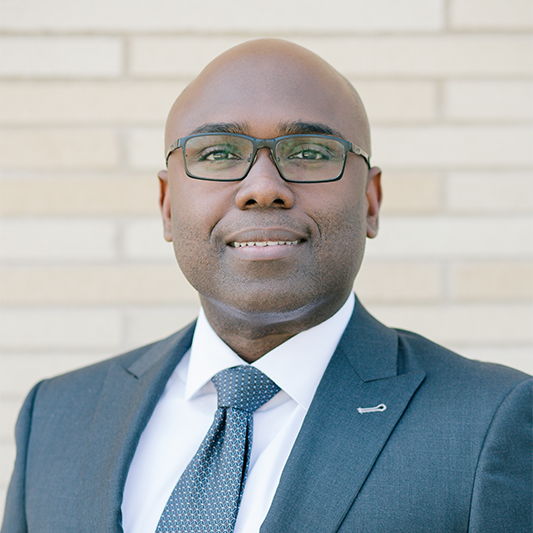 Marc Dandin, Ph.D., is an Assistant Professor in the Department of Electrical and Computer Engineering at Carnegie Mellon University where he also holds a courtesy appointment in the Biomedical Engineering Department. Previously, he was an Adjunct Professor of Electrical and Computer Engineering at the George Washington University in Washington, DC. He is a technology entrepreneur and the founding President and Chief Executive Officer of Kiskeya Microsystems LLC, an investor-funded technology start-up that developed microsystems for point-of-care HIV diagnostics in resource-limited settings. Dr. Dandin is an inventor on several U.S. patent applications assigned to Kiskeya Microsystems.
Marc Dandin, Ph.D., is an Assistant Professor in the Department of Electrical and Computer Engineering at Carnegie Mellon University where he also holds a courtesy appointment in the Biomedical Engineering Department. Previously, he was an Adjunct Professor of Electrical and Computer Engineering at the George Washington University in Washington, DC. He is a technology entrepreneur and the founding President and Chief Executive Officer of Kiskeya Microsystems LLC, an investor-funded technology start-up that developed microsystems for point-of-care HIV diagnostics in resource-limited settings. Dr. Dandin is an inventor on several U.S. patent applications assigned to Kiskeya Microsystems.
He earned his PhD degree in Bioengineering in 2012 from the University of Maryland, College Park. He also earned his Master’s and Bachelor’s degrees in Electrical Engineering from the University of Maryland, College Park, in 2007 and 2004, respectively. Dr. Dandin was the recipient of the 2008 Fischell Fellowship in Biomedical Engineering and the recipient of the 2011 inaugural Jimmy H. C. Lin Award for Entrepreneurship. He is a Senior Member of the IEEE.
His work currently focuses on the development of integrated circuits and microsystems for monitoring in vitro cancer models. His recent research has been funded by the Pennsylvania Information and Technology Alliance, the David Scaife Family Charitable Foundation through Carnegie Mellon’s Mellon College of Science, and an Oracle Research Project Award. Dr. Dandin is an established intellectual property professional, having drafted and prosecuted numerous U.S. and foreign patent applications for over 10 years on behalf of several Fortune 500 companies.
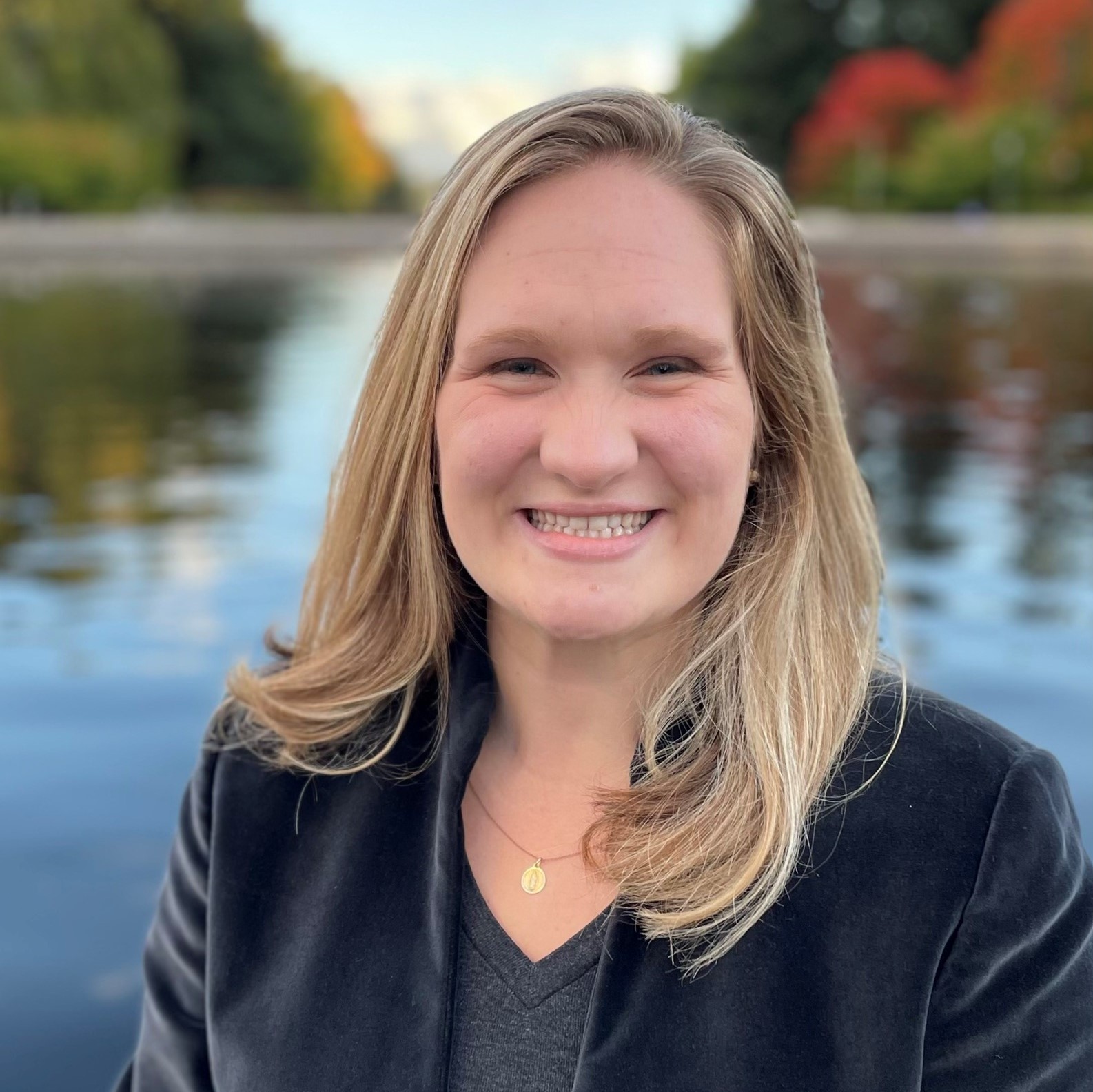 Katie Edwards is the Deputy Director of Aviation Safety & Regulatory Affairs in Washington D.C. at The Boeing Company. This position integrates Boeing core engineering with the Government Operations team and collaborates with numerous external stakeholders on regulatory and safety topics that impact the business. She focuses on commercial products within the legislative affairs team. Edwards also represents Boeing on the leadership team for the Radio Technical Commission for Aeronautics (RTCA) Special Committee 228, Minimum Performance Standards for Unmanned Aircraft Systems.
Katie Edwards is the Deputy Director of Aviation Safety & Regulatory Affairs in Washington D.C. at The Boeing Company. This position integrates Boeing core engineering with the Government Operations team and collaborates with numerous external stakeholders on regulatory and safety topics that impact the business. She focuses on commercial products within the legislative affairs team. Edwards also represents Boeing on the leadership team for the Radio Technical Commission for Aeronautics (RTCA) Special Committee 228, Minimum Performance Standards for Unmanned Aircraft Systems.
Prior to this role, Edwards was the lead certification engineer and deputy program manager of the Insitu ScanEagle3 type certification project, a pathfinder for commercial certification of autonomous aircraft with the Federal Aviation Administration. Edwards has held engineering positions across the enterprise and country through her selection for the Engineering Career Foundation Program, working in International Fleet Care Customer Support, KC-46 Tanker Manufacturing Engineering, Airplane Safety Engineering, and Flight Test Engineering Analysis for Automatic Flight Controls and Sensors. She began her Boeing career as a Design Engineering intern at the Interiors Responsibility Center in South Carolina. Edwards holds a Master's in Industrial and Systems Engineering from the University of Washington, a Bachelor's in Civil Engineering from the University of Maryland, and is a licensed professional engineer (PE), registered in the state of Washington. She is a leader on the Boeing board of the American Society of Civil Engineers (ASCE), and a national professional member of the Society of Women Engineers and the Association for Unmanned Vehicle Systems International.
 Rose T. Faghih, Ph.D., is an associate professor of Biomedical Engineering at the New York University (NYU). Prior to joining NYU, she was an assistant professor of Electrical and Computer Engineering at the University of Houston. She received a bachelor’s degree (summa cum laude) in Electrical Engineering (Honors Program Citation) from the University of Maryland, and S.M. and Ph.D. degrees in Electrical Engineering and Computer Science with a minor in Mathematics from MIT, all with perfect GPAs. Dr. Faghih completed her postdoctoral training at the Department of Brain and Cognitive Sciences and the Picower Institute for Learning and Memory at MIT as well as the Department of Anesthesia, Critical Care and Pain Medicine at the Massachusetts General Hospital. Dr. Faghih is the recipient of various awards including an MIT Technology Review 2020 Innovator Under 35 award, a 2020 National Science Foundation CAREER Award, a 2020 Research Excellence award as well as a 2020 Teaching Excellence Award from the University of Houston's Cullen College of Engineering, a 2016 IEEE-USA New Face of Engineering award, a National Science Foundation Graduate Research Fellowship, an MIT Graduate Fellowship, and the University of Maryland's Department of Electrical and Computer Engineering Chair's Award. Moreover, Dr. Faghih was selected by the National Academy of Engineering for the 2019 U.S. Frontiers of Engineering Symposium. In 2020, Dr. Faghih was featured by the IEEE Women in Engineering Magazine as a “Woman to Watch”. Furthermore, she has been inducted into various honor societies including Phi Kappa Phi, Tau Beta Pi, and Eta Kappa Nu.
Rose T. Faghih, Ph.D., is an associate professor of Biomedical Engineering at the New York University (NYU). Prior to joining NYU, she was an assistant professor of Electrical and Computer Engineering at the University of Houston. She received a bachelor’s degree (summa cum laude) in Electrical Engineering (Honors Program Citation) from the University of Maryland, and S.M. and Ph.D. degrees in Electrical Engineering and Computer Science with a minor in Mathematics from MIT, all with perfect GPAs. Dr. Faghih completed her postdoctoral training at the Department of Brain and Cognitive Sciences and the Picower Institute for Learning and Memory at MIT as well as the Department of Anesthesia, Critical Care and Pain Medicine at the Massachusetts General Hospital. Dr. Faghih is the recipient of various awards including an MIT Technology Review 2020 Innovator Under 35 award, a 2020 National Science Foundation CAREER Award, a 2020 Research Excellence award as well as a 2020 Teaching Excellence Award from the University of Houston's Cullen College of Engineering, a 2016 IEEE-USA New Face of Engineering award, a National Science Foundation Graduate Research Fellowship, an MIT Graduate Fellowship, and the University of Maryland's Department of Electrical and Computer Engineering Chair's Award. Moreover, Dr. Faghih was selected by the National Academy of Engineering for the 2019 U.S. Frontiers of Engineering Symposium. In 2020, Dr. Faghih was featured by the IEEE Women in Engineering Magazine as a “Woman to Watch”. Furthermore, she has been inducted into various honor societies including Phi Kappa Phi, Tau Beta Pi, and Eta Kappa Nu.
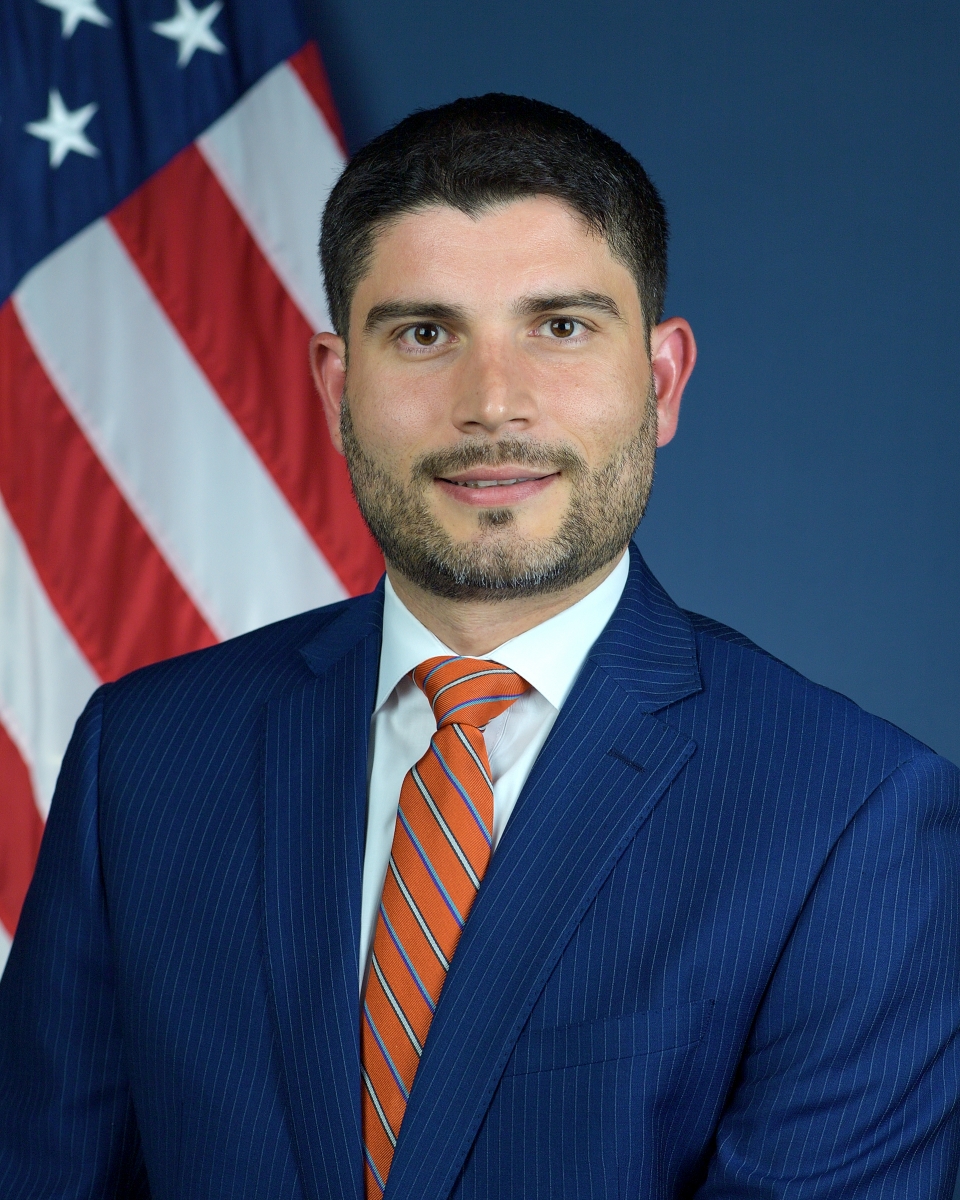 Morteza Farajian, Ph.D., has served as executive director of the Build America Bureau at US Department of Transportation since 2019. In this role he leads USDOT's credit programs and loan guarantees to support development of large-scale and multimodal transportation projects with approximately $30 billion in existing loans and an additional $110 billion in available lending capacity. The Bureau also promotes innovative project financing solutions such as Public-Private Partnerships (P3s) and helps state and local governments develop capacity to procure and finance P3 transactions for transportation facilities. He serves as Chair of Credit Review Team and a member of the Council on Credit and Finance overseeing risk monitoring, both at project level and portfolio level, during design and implementation, and where needed. Dr. Farajian also ensures effective mitigation of strategic, operational and/or reputational risks to the Bureau and USDOT.
Morteza Farajian, Ph.D., has served as executive director of the Build America Bureau at US Department of Transportation since 2019. In this role he leads USDOT's credit programs and loan guarantees to support development of large-scale and multimodal transportation projects with approximately $30 billion in existing loans and an additional $110 billion in available lending capacity. The Bureau also promotes innovative project financing solutions such as Public-Private Partnerships (P3s) and helps state and local governments develop capacity to procure and finance P3 transactions for transportation facilities. He serves as Chair of Credit Review Team and a member of the Council on Credit and Finance overseeing risk monitoring, both at project level and portfolio level, during design and implementation, and where needed. Dr. Farajian also ensures effective mitigation of strategic, operational and/or reputational risks to the Bureau and USDOT.
Dr. Farajian fosters strong relationships with counterparts in other U.S. agencies, state and local governments, industry organizations, private companies, international counterparts, and global institutions to identify collaboration opportunities and to enhance business delivery.
Prior to joining USDOT, Dr. Farajian served the Commonwealth of Virginia where he started as a program manager, was promoted to Director of P3 office and appointed to acting Deputy Secretary of Transportation within seven years. During this period he successfully developed, procured and financed portfolio of transportation projects worth $14 billion.
Dr. Farajian is also an entrepreneur who co-founded InfraShares, a crowd-financing platform that provides local and small investors the opportunity to invest in infrastructure projects as equity or subordinate debt.
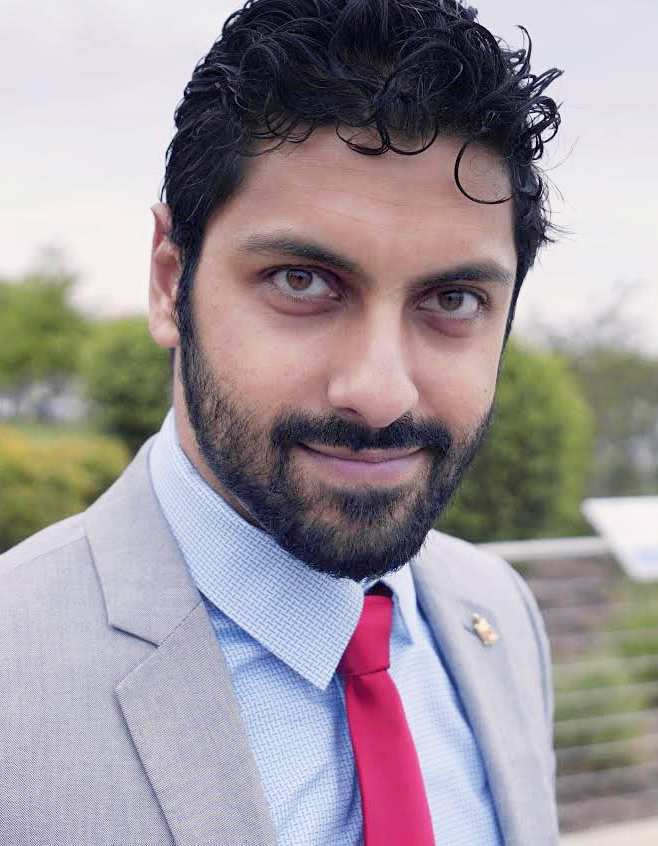 Imraan A. Faruque, Ph.D.’s specialization is in the dynamics and control of aerospace vehicles, particularly those needing robust performance during tight constraints on computational power or GPS-denied navigation.
Imraan A. Faruque, Ph.D.’s specialization is in the dynamics and control of aerospace vehicles, particularly those needing robust performance during tight constraints on computational power or GPS-denied navigation.
While studying insect flight as an example of robust flight navigation and control, he developed the first 6DOF insect flight dynamics models appropriate for controls studies, resulting in widespread community adoption.
He was awarded the 2019 Office of Naval Research Young Investigator Award to study the flexible decision-making in insects during multi-agent group and swarm flight, and developed experimentally-consistent, mathematically-rigorous models of insect feedback in groups from high speed analysis of honeybees in crowded flight. From theoretical work describing visual swarming rules of biology to deployed open-source autopilot software providing GPS-denied multi-sensor navigation, his breakthroughs have spanned theoretical to applied. His work has led to over 50 publications including five best paper awards and two patents and his leadership was recognized as a recipient of the 2017 American Institute of Aeronautics and Astronautics NCS Young Engineer/Scientist of the Year award.
Dr. Faruque earned BS and CS degrees in Aerospace and Ocean Engineering from Virginia Tech, and MS and PhD degrees in aerospace engineering from the University of Maryland. He is currently autonomy lead at OSU's Unmanned Systems Research Institute, a founding member of the Oklahoma Aerospace Institute for Research and Education (OAIRE), and a member of the OSU CubeSat Program and OSU Brain Initiative. Dr. Faruque’s work has drawn support from ARO, ONR, AFRL, DARPA, NASA, NOAA, FAA, and Space Force.
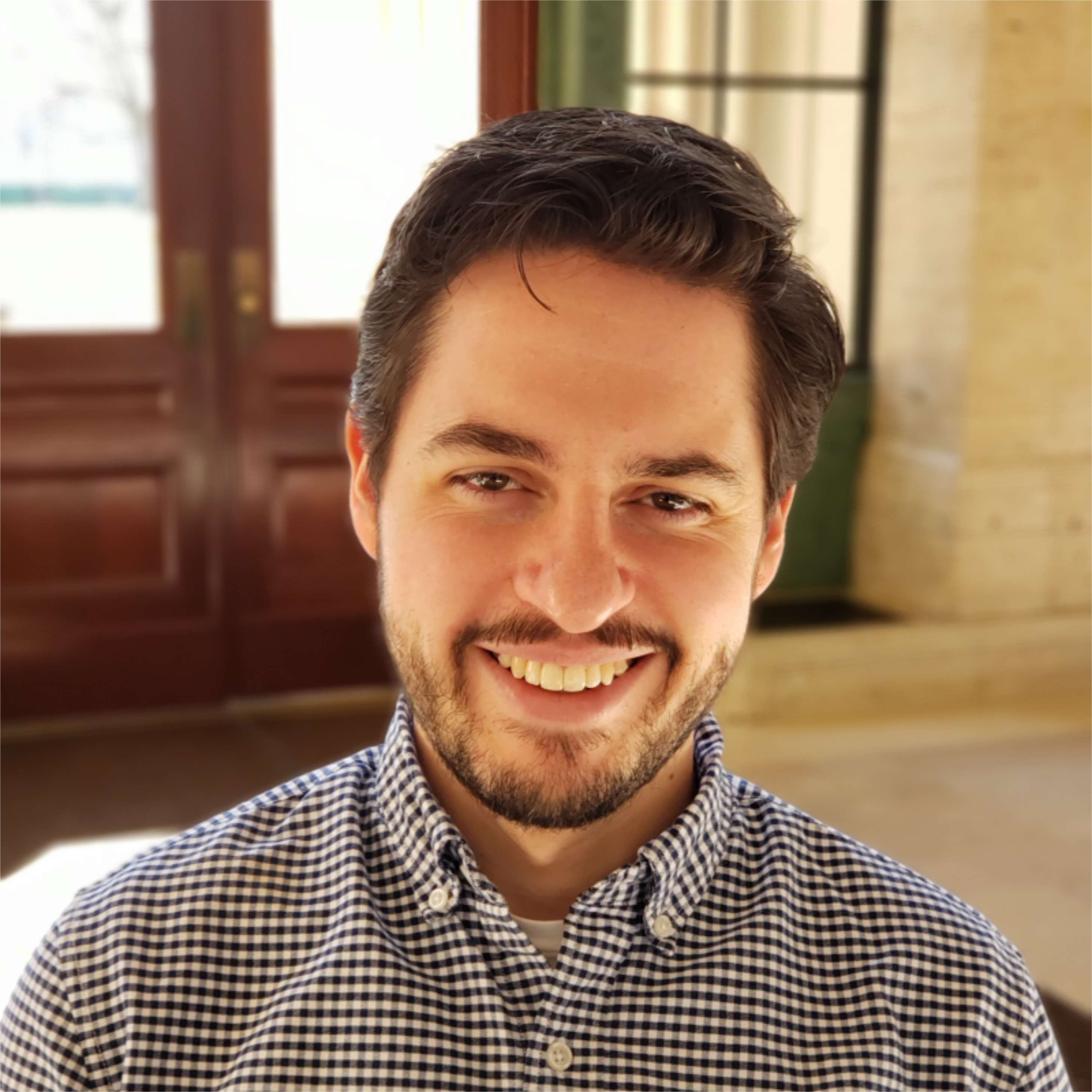 Jeffrey Gair Jr., Ph.D., is the Founder of Scinetics, Inc., a research and development corporation focused on launching socially-minded, deep-tech ventures. His most recent venture is Modular Matter, Inc., which is building an ultra-comfortable, low-cost prosthesis socket.
Jeffrey Gair Jr., Ph.D., is the Founder of Scinetics, Inc., a research and development corporation focused on launching socially-minded, deep-tech ventures. His most recent venture is Modular Matter, Inc., which is building an ultra-comfortable, low-cost prosthesis socket.
Prior to founding Scinetics, Dr. Gair worked for the United States Army Research Laboratory (ARL) in the Weapons and Materials Research Directorate and the Vehicle Technology Directorate on a wide range of materials and design-related projects. Much of his work here was in designing, developing, and testing advanced materials for military applications.
For his doctoral and postdoctoral research, Dr. Gair worked closely with MIT’s Aero/Astro department and the Institute for Soldier Nanotechnologies to understand and develop multifunctional materials for air vehicles. From 2018-2019, he relocated to Cambridge, MA to continue and expand collaborations at MIT as a Visiting Scientist, and grow an ARL program for multifunctional and intelligent materials and systems. During that time, he built and managed an interdisciplinary team of scientists and engineers, collaborating across MIT’s Aero/Astro, Materials Science and Engineering, Media Lab, and Physics departments. In this capacity, Dr. Gair was the visionary and implementer of a broad program on intelligent materials and intelligent systems for the future Warfighter. He also served as a tech scout and University-Industry-Military liaison to transition basic and applied university science to solve present military needs. These roles have given him significant project management, program design and management, and leadership skills.
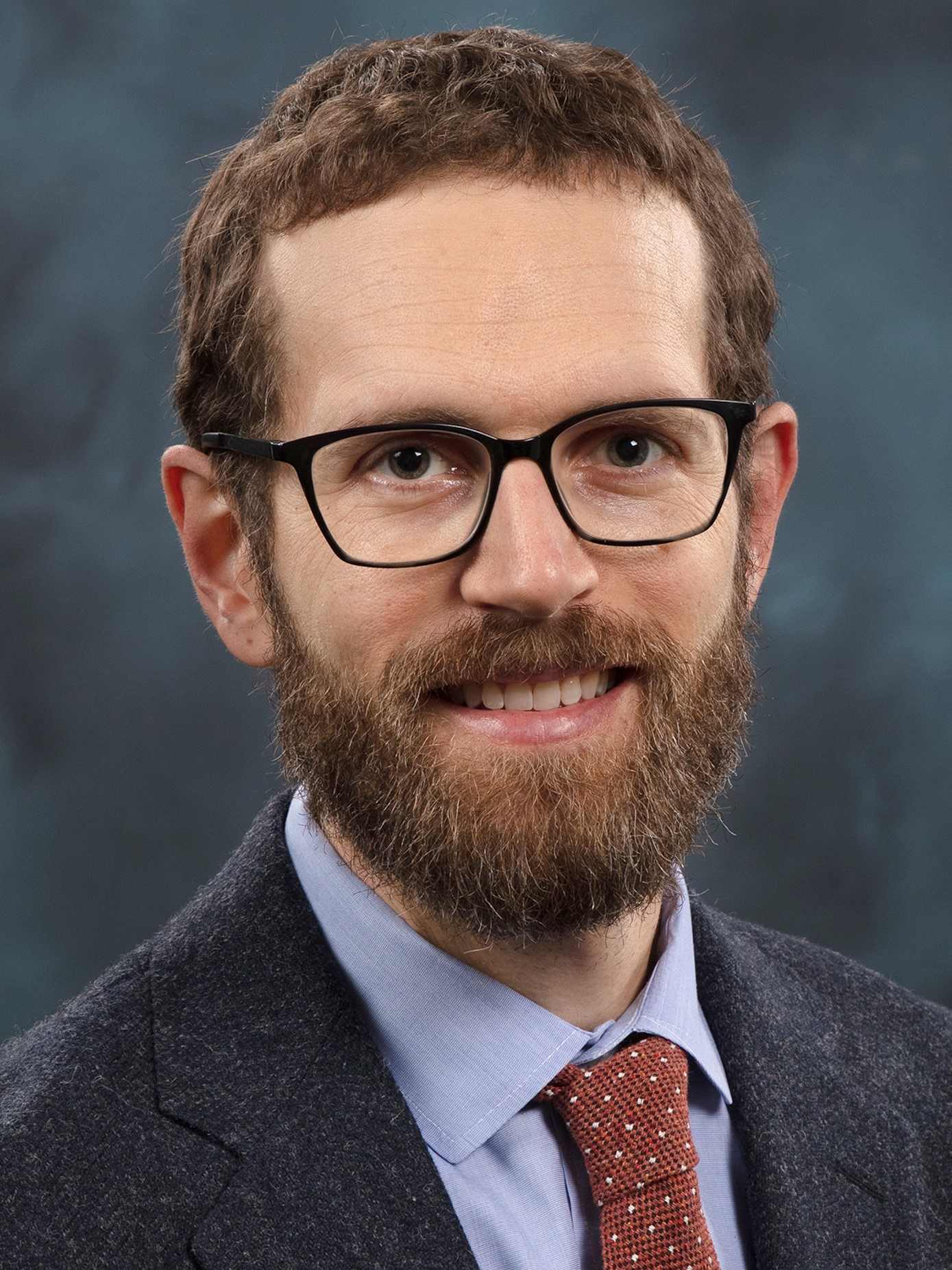 Kyle Gluesenkamp, Ph.D., is a Senior R&D Scientist at the US Department of Energy’s Oak Ridge National Laboratory (ORNL), where he serves as ORNL’s Subprogram Manager for HVAC Equipment. He is an influential leader in research on efficient equipment for buildings, with 15 years of experience and deep expertise in sorption technologies, thermal storage and phase change materials, residential appliances (clothes dryers and dishwashers), heat pumps, heat transfer, psychrometrics, and experimental prototype evaluation. He has published 2 book chapters, 48 peer-reviewed journal articles, more than 90 conference articles and reports, and has 4 granted patents.
Kyle Gluesenkamp, Ph.D., is a Senior R&D Scientist at the US Department of Energy’s Oak Ridge National Laboratory (ORNL), where he serves as ORNL’s Subprogram Manager for HVAC Equipment. He is an influential leader in research on efficient equipment for buildings, with 15 years of experience and deep expertise in sorption technologies, thermal storage and phase change materials, residential appliances (clothes dryers and dishwashers), heat pumps, heat transfer, psychrometrics, and experimental prototype evaluation. He has published 2 book chapters, 48 peer-reviewed journal articles, more than 90 conference articles and reports, and has 4 granted patents.
Dr. Gluesenkamp leads interdisciplinary research teams on efficient equipment for buildings, and also leads program management of the HVAC research area at ORNL. His innovations have received multiple technology commercialization awards and he is a recipient of the Rittinger Award for heat pump technology development as part of the ORNL Building Equipment Group. He serves students as an ORNL Graduate Advisor with the Bredesen Center for Interdisciplinary Studies at the University of Tennessee, is a recipient of the ASHRAE Distinguished Service Award for service to the society, and has chaired multiple ASHRAE technical committees. During his 9 years at ORNL, he has mentored dozens of interns, graduate students, postdocs, and junior staff, with a consistent record of career progression among his mentees. In addition, he has been a US expert for IEA Heat Pump Technologies Annexes on sorption and thermal storage, is active in ASME and ASHRAE, and is engaged with multiple scientific conference steering committees.
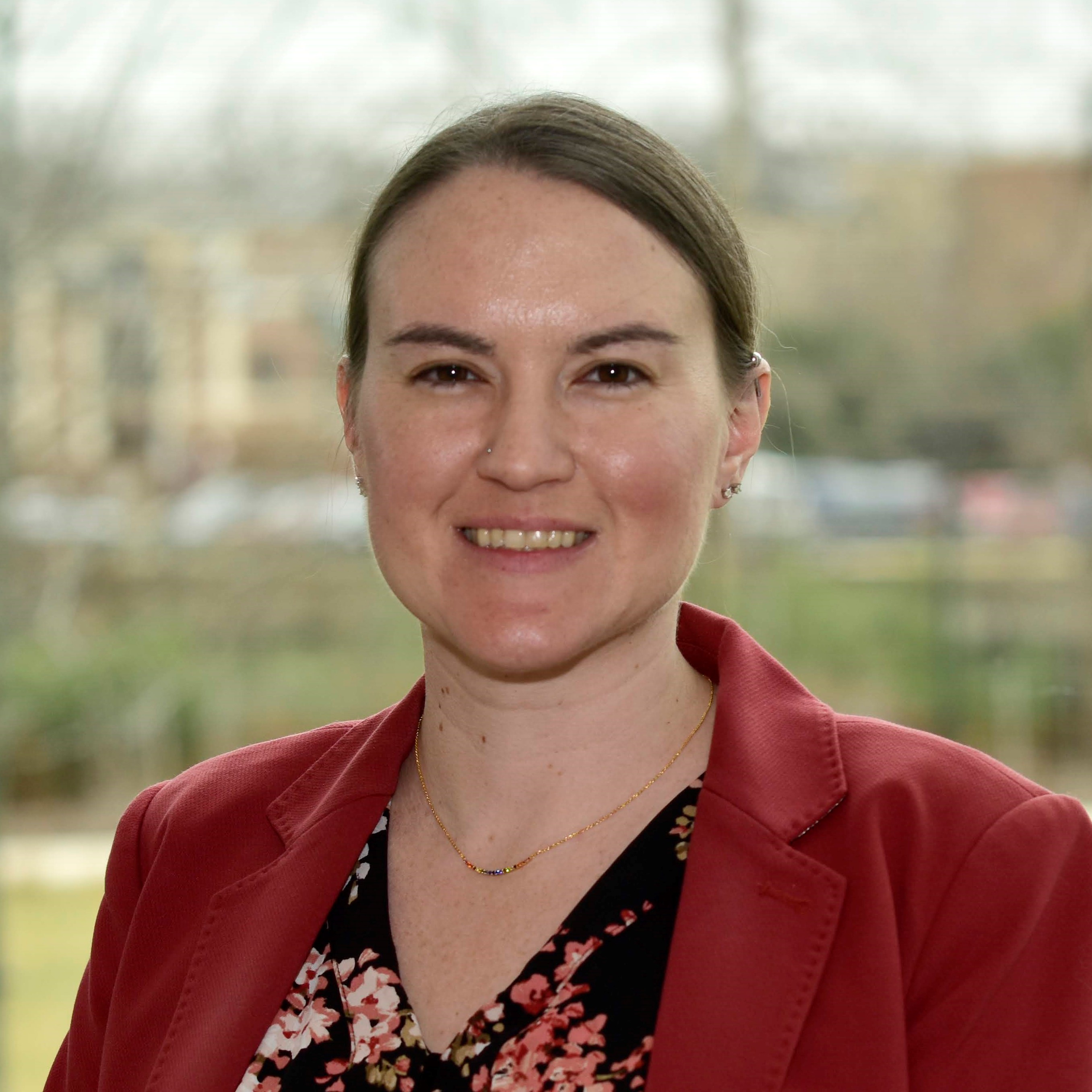 Katrina M. Groth, Ph.D., is an early career professional with a distinguished set of contributions to the fields of reliability engineering, system safety, and risk assessment. Groth is an Associate Professor in Mechanical Engineering at the University of Maryland and the associate director for research for UMD's Center for Risk and Reliability. Groth has a unique distinction as one of the few UMD faculty members who is also a three-time alumnae of UMD. She received her B.S. in Engineering (nuclear focus) in 2004, her M.S. and Ph.D. in Reliability Engineering in 2008 and 2009 respectively.
Katrina M. Groth, Ph.D., is an early career professional with a distinguished set of contributions to the fields of reliability engineering, system safety, and risk assessment. Groth is an Associate Professor in Mechanical Engineering at the University of Maryland and the associate director for research for UMD's Center for Risk and Reliability. Groth has a unique distinction as one of the few UMD faculty members who is also a three-time alumnae of UMD. She received her B.S. in Engineering (nuclear focus) in 2004, her M.S. and Ph.D. in Reliability Engineering in 2008 and 2009 respectively.
Currently, Groth teaches undergraduate and graduate coursework in UMD’s Reliability Engineering program and leads of lab of over a dozen students. Prior to joining UMD as faculty, she spent 7 years as a researcher in the Energy Risk and Reliability Analysis Department at Sandia National Laboratories. At Sandia, she led multiple projects in hydrogen safety, probabilistic risk assessment, and human reliability analysis for a wide range of technologies with national security implications. During her Ph.D. studies, Groth spent time as a visiting academic research in the Idaho National Laboratory’s Human Factors and Instrumentation and Controls group where she collected data on human reliability in nuclear power plants. Groth is a board member at the National Museum of Nuclear Science and History, in Albuquerque, NM. She is also on the editorial board of Reliability Engineering and System Safety and serves as an associate editor for Nuclear Science and Engineering.
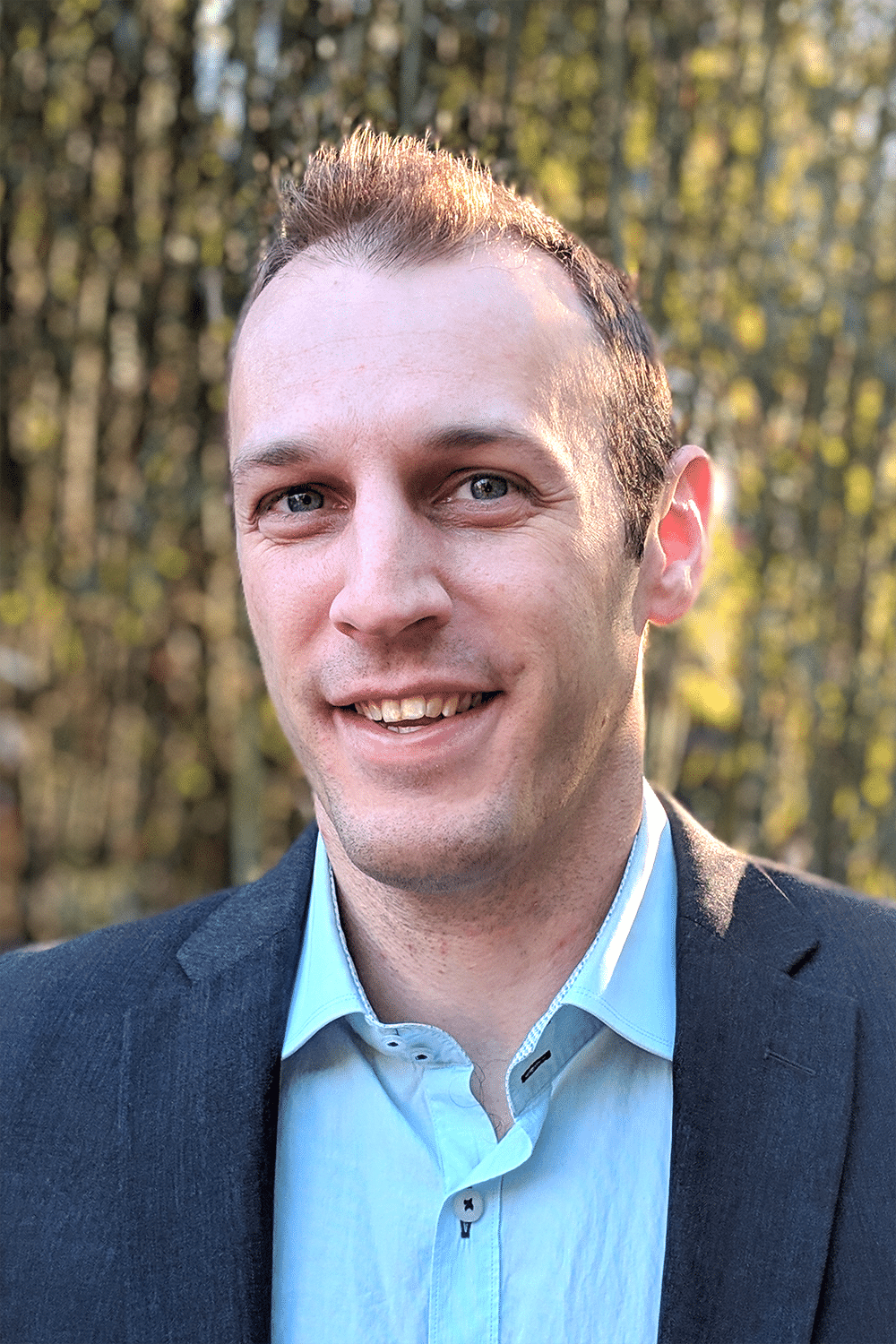
Gregory Hitz, Ph.D. accepted a Banneker-Key Scholarship to study Chemical Engineering at University of Maryland, earning his B.S. in 2009 from the Gemstone Program and won the award for Best Gemstone Thesis Defense for his work developing microbial fuel cells.
Dr. Hitz entered a career in manufacturing and performing downstream protein purification with Genzyme. Dr.Hitz's small team produced the only supply of a life-sustaining drug for the world’s 10,000 Fabry’s sufferers. This experience honed his love for technology with the understanding that commercialization and manufacturing to put it in the hands of customers is where it begins to have an impact on the world.
This inspired Dr. Hitz in his drive to solve the world’s biggest problems. He pursued graduate school to develop batteries to power electric vehicles and unlock renewable energy with grid storage and was inspired by Dr. Eric Wachsman’s solid state battery innovation. Dr. Hitz's PhD work built a fabrication process, demonstrated the technology, and performed technoeconomic analysis to evaluate market potential.
Propelled by ARPA-E funding, Drs. Wachsman and Hitz cofounded ION Storage Systems to begin technology commercialization. Inundated with interest from every major battery-using company, ION teamed with investor Alsop Louie Partners to open an $8M seed round and began hiring scientists and engineers to tech transfer the technology and begin scaling toward production.
The founders recruited a former Apple-executive CEO and have built the company into a highly productive, 35-employee powerhouse on the verge of manufacturing its first market Defense battery, funded by a recently closed $30M investment round.
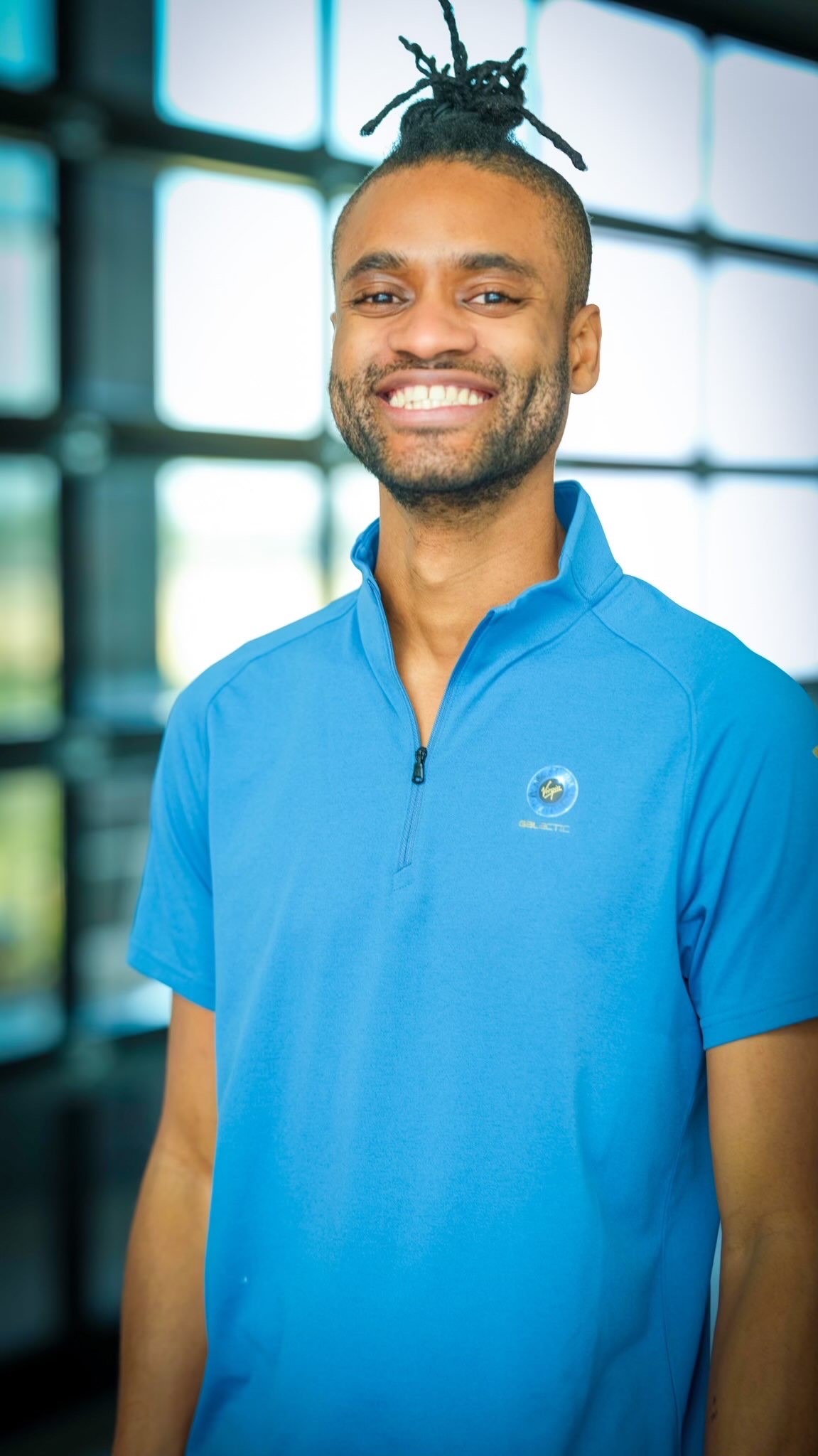 Chris Huie-Spence began working in the pioneering industry of commercial human spaceflight at Virgin Galactic (VG) in 2016 as a Loads and Simulation Engineer. Now, as the Flight Sciences Senior Loads Manager, Huie-Spence is a member of Virgin Galactic’s technical leadership team based in Southern California.
Chris Huie-Spence began working in the pioneering industry of commercial human spaceflight at Virgin Galactic (VG) in 2016 as a Loads and Simulation Engineer. Now, as the Flight Sciences Senior Loads Manager, Huie-Spence is a member of Virgin Galactic’s technical leadership team based in Southern California.
Before joining Virgin Galactic, Huie-Spence spent over 5 years at Bell Flight engineering various rotorcraft programs, most notably the Bell V-280 Tiltrotor, and as a Simulation Engineer developing and certifying Flight Crew Training Simulators around the world. While at Bell, Huie-Spence served as Career Development Chair and President of PRODIGY, Bell’s Early Career Employee Resource Group, and was a founding donor to the Bell Helicopter Engineers on a Mission Scholarship Fund at University of Maryland.
Huie-Spence is originally from Orlando, FL and received his B.S. in Aerospace Engineering from the University of Maryland, College Park (UMD). While at UMD, he was a scholar in the QUEST Honors Program, the Igor Sikorsky Scholarship Program (ISSP), and also conducted undergraduate research in the Alfred Gessow Rotorcraft Center as part of the National Science Foundation’s LSAMP Undergraduate Research Program. As part of the ISSP, he also completed 3 internships at Sikorsky Aircraft in Mechanical Diagnostics & Prognostics and Aerodynamics.
Huie-Spence is a science enthusiast and loves inspiring and mentoring the next generation of students interested in Science, Engineering, and Aerospace. He is an active member of the Galactic Unite team and the Co-Founder and Coordinator for Galactic Unite’s Black Leaders in Aerospace Scholarship & Training (BLAST) Program.
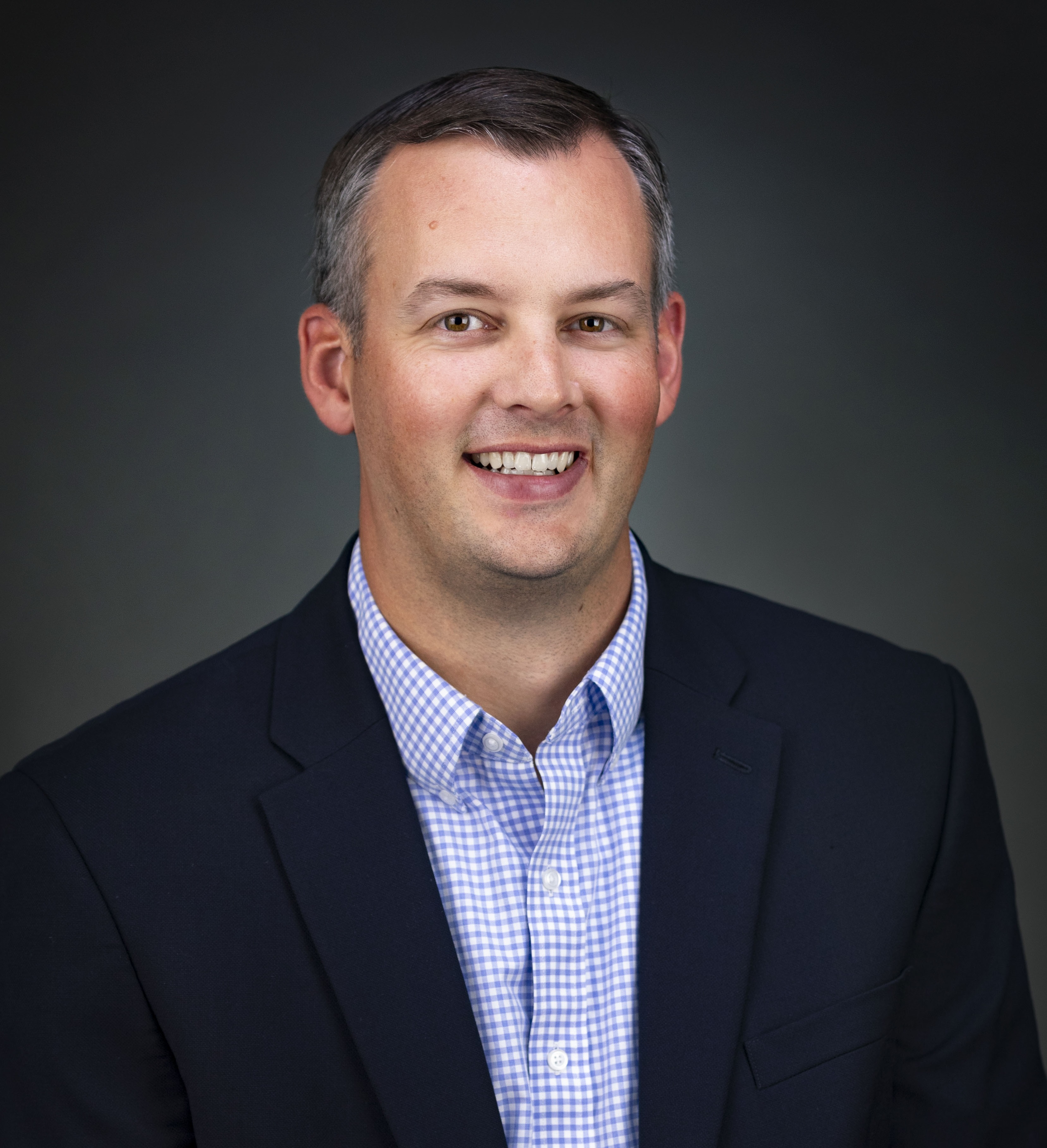 Steve Kerber is Vice President and Executive Director of UL's Fire Safety Research Institute (FSRI). He leads a fire safety research team dedicated to addressing the world's unresolved fire safety risks and emerging dangers to reduce death, injury and loss from fire. Kerber has led research in the areas of fire safety engineering, firefighter safety, fire forensics, and fire science. He received his bachelor’s and master’s degrees in fire protection engineering from the University of Maryland and completed his doctorate at Lund University in Sweden after defending his thesis titled, "Utilizing Research to Enhance Fire Service Knowledge." Kerber is also a 13-year veteran of the fire service, with most of his service at the College Park Fire Department in Prince George's County Maryland where he served at ranks up through Deputy Chief. He has also been appointed to the rank of Honorary Battalion Chief by the Fire Department of New York, was named the 2014 ISFSI and Fire Engineering George D. Post Instructor of the Year and was awarded the 2019 Metropolitan Fire Chiefs President’s Award of Distinction.
Steve Kerber is Vice President and Executive Director of UL's Fire Safety Research Institute (FSRI). He leads a fire safety research team dedicated to addressing the world's unresolved fire safety risks and emerging dangers to reduce death, injury and loss from fire. Kerber has led research in the areas of fire safety engineering, firefighter safety, fire forensics, and fire science. He received his bachelor’s and master’s degrees in fire protection engineering from the University of Maryland and completed his doctorate at Lund University in Sweden after defending his thesis titled, "Utilizing Research to Enhance Fire Service Knowledge." Kerber is also a 13-year veteran of the fire service, with most of his service at the College Park Fire Department in Prince George's County Maryland where he served at ranks up through Deputy Chief. He has also been appointed to the rank of Honorary Battalion Chief by the Fire Department of New York, was named the 2014 ISFSI and Fire Engineering George D. Post Instructor of the Year and was awarded the 2019 Metropolitan Fire Chiefs President’s Award of Distinction.
 Fatema Kothari is the Director for Operations & Strategy for Microsoft's Airband Initiative within the Technology & Corporate Responsibility organization. She leads Airband’s global operations to expand internet connectivity to unserved communities through partnerships across 5 continents.
Fatema Kothari is the Director for Operations & Strategy for Microsoft's Airband Initiative within the Technology & Corporate Responsibility organization. She leads Airband’s global operations to expand internet connectivity to unserved communities through partnerships across 5 continents.
Kothari is an avid advocate for gender parity in technology. She previously served on the board for the global non-profit Girls in Tech SF for three years and currently, is an advisor to leading women entrepreneurs from Africa through the TechWomen program run by the U.S. Department of State. As an advisor on digital equity, Kothari has also contributed her expertise to the Federal Communications Commission’s Advisory Committee on Diversity and Digital Empowerment and the UN’s High-Level Panel on Digital Cooperation, to ensure that disadvantaged communities are not denied the wide range of opportunities made possible by next-generation telecommunication networks.
An engineer by education, Kothari holds a Master's degree in Telecommunications from the University of Maryland, College Park. Outside of work, Kothari spends her time experimenting with DIY craft projects and plotting exhaustive maps of her future travels.
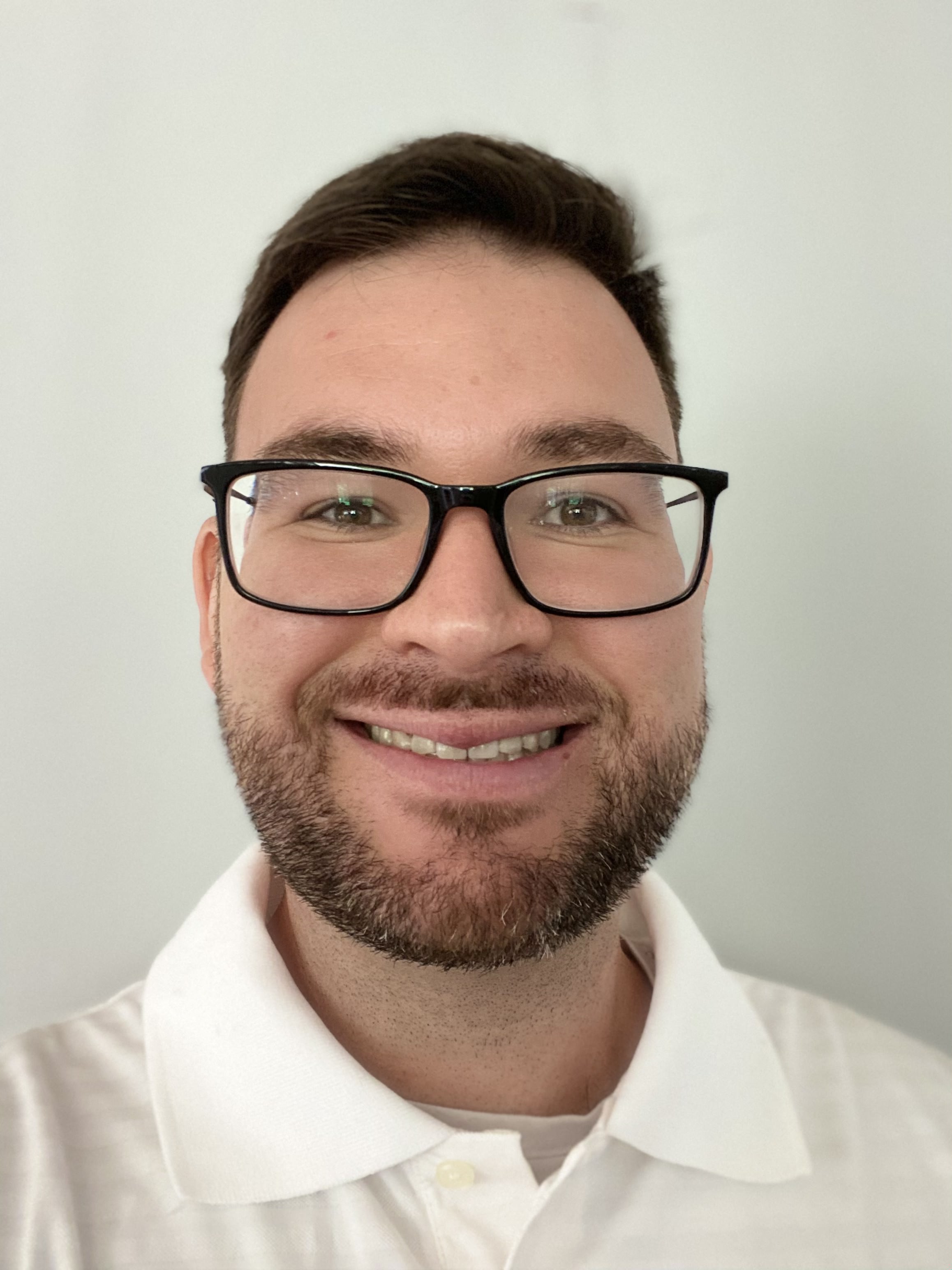 Brandon Lester is a Senior Defense and Intelligence Technology Strategist at Microsoft. He serves as the Virtual Chief Technology Officer (CTO) to USINDOPACOM Joint Forces and Air Force, Army, Navy, Marine Corps in the Indo-Pacific theater. In this role, he is at the forefront of digital transformation efforts in the Department of Defense and Intelligence Community. He focuses on supporting national security priorities and desired outcomes to orchestrate Microsoft’s resources to support the United States.
Brandon Lester is a Senior Defense and Intelligence Technology Strategist at Microsoft. He serves as the Virtual Chief Technology Officer (CTO) to USINDOPACOM Joint Forces and Air Force, Army, Navy, Marine Corps in the Indo-Pacific theater. In this role, he is at the forefront of digital transformation efforts in the Department of Defense and Intelligence Community. He focuses on supporting national security priorities and desired outcomes to orchestrate Microsoft’s resources to support the United States.
Prior to Microsoft, Lester was the first CTO at SRC Technologies in Columbia, MD. In this role, he led the company’s technology strategy by collaborating with leadership (CEO, CFO, Vice Presidents) to set technical vision and strategy, develop the workforce, and execute on behalf of Intelligence Community and Defense customers. Lester was promoted to the CTO role after having established the Innovations Department focused on cutting edge technologies including cybersecurity engineering, data engineering and cross domain solutions for secure data transfers in defense/intelligence applications and insider threat security analytics.
Lester pivoted from mechanical engineering to the Intelligence Community when he joined CACI International in Wiesbaden, Germany. In this role, he led a team of data engineers in major projects, mission essential system administration, and day-to-day hardware/software support.
Lester started his career as a multi-disciplined engineer at Northrop Grumman manufacturing electronics for military radar systems in Linthicum, MD.
Lester holds a Masters in Mechanical Engineering from Johns Hopkins University and has professional certifications including his CISSP, PMP, Cloud certifications from Microsoft, AWS, and Google Cloud.
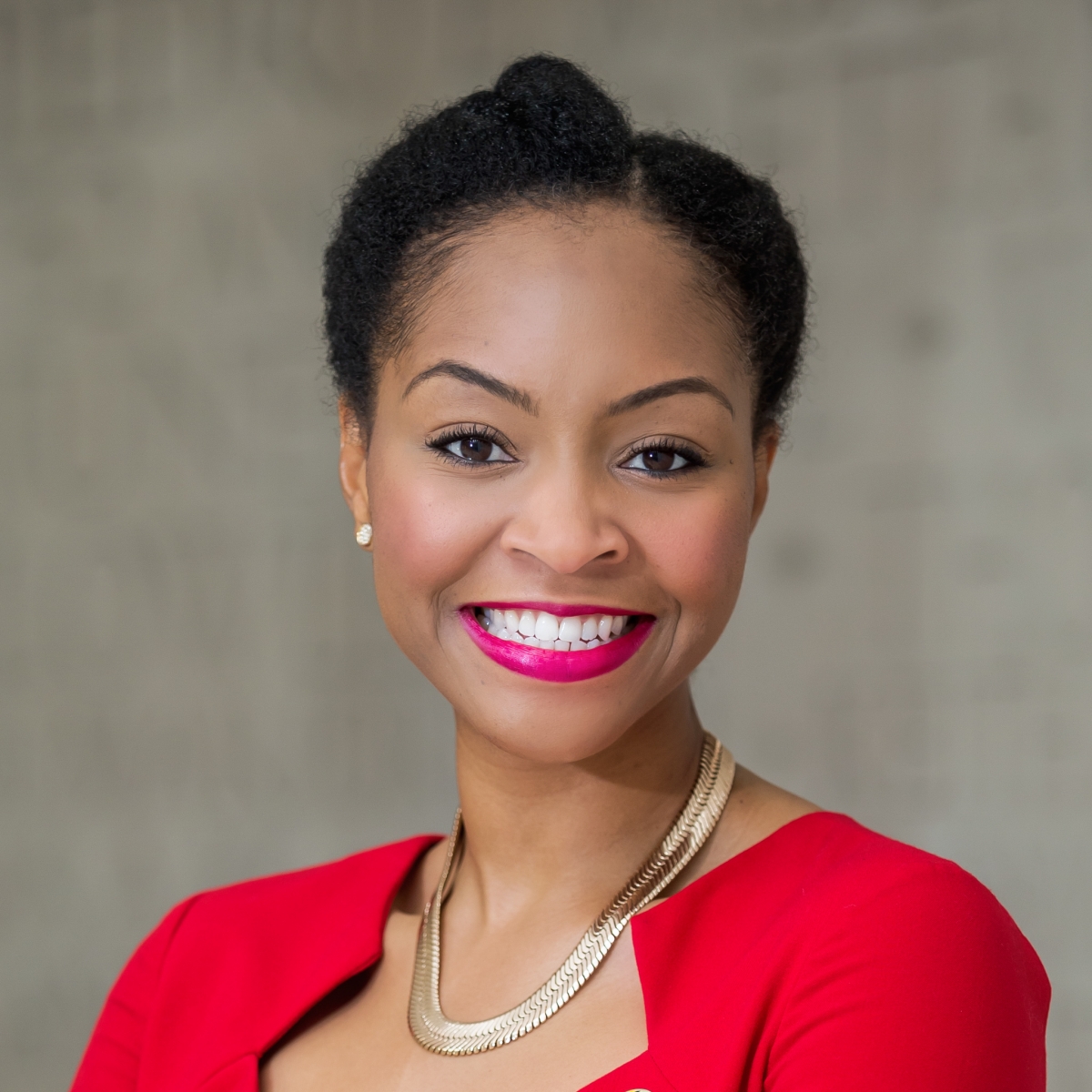 Nefretiti Nassar is the bestselling author of “Play It to Win: Strategies for Millennials Starting in Corporate America.” Having ranked #1 in Amazon’s New Releases for four consecutive weeks, the career development counseling book guides young professionals to identify and navigate the unwritten rules of the workplace. Nassar has also published many engineering research papers in addition to achieving a number of honors, for example, the Hiram Whittle Legacy Award from the University of Maryland and selection as a U.S. Presidential Management Fellows Program Finalist.
Nefretiti Nassar is the bestselling author of “Play It to Win: Strategies for Millennials Starting in Corporate America.” Having ranked #1 in Amazon’s New Releases for four consecutive weeks, the career development counseling book guides young professionals to identify and navigate the unwritten rules of the workplace. Nassar has also published many engineering research papers in addition to achieving a number of honors, for example, the Hiram Whittle Legacy Award from the University of Maryland and selection as a U.S. Presidential Management Fellows Program Finalist.
Nassar is also a Senior Technical Advisor at Axiologic Solutions where she provides technical expertise, recommendations, and strategic direction to organizational leadership. She advises the Chief Technology Office on human capital strategy and workforce development. Nassar additionally serves as a board member on the board of governors for the Alumni Association at the University of Maryland, where she is also the Chair of the Diversity, Equity, and Inclusion Committee. Prior to joining Axiologic Solutions in 2020, Nassar was a Program Manager at Booz Allen Hamilton where she provided program management leadership to a team of ten comprised of Booz Allen employees and subcontractors. She directed all program planning, budget planning and management, schedule, risk management, client engagements and deliverables for a contract valued at $5 million.
She holds both a B.S. in Electrical Engineering and an M.S. in Systems Engineering from the University of Maryland, College Park. She is an avid international traveler and mentors students and young professionals.
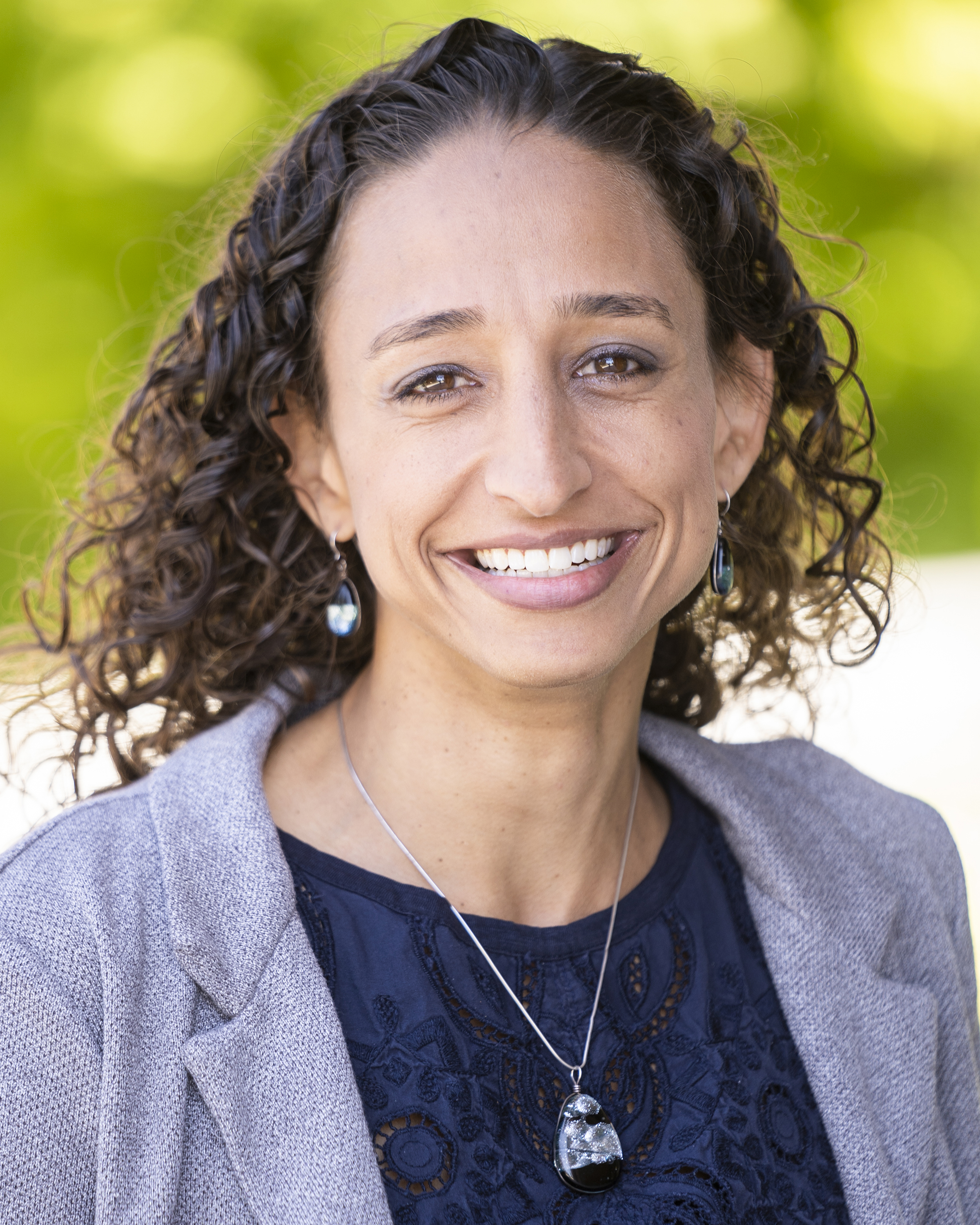 Grace O’Connell, Ph.D. is an associate professor in the Department of Mechanical Engineering at the University of California, Berkeley. She is the co-director of the Berkeley Biomechanics Laboratory, and her research interests are in soft tissue mechanobiology and tissue engineering. O’Connell received a PhD in Bioengineering from the University of Pennsylvania in 2009, where her research focused on intervertebral disc biomechanics with age, degeneration, and injury. O’Connell’s research group focuses on tissue and joint-level intervertebral disc mechanobiology, utilizing experimental and computational techniques to understand disease progression and tissue failure. Her research has innovated multi-scale structure-based modeling of biological composite materials, greatly increasing the accuracy and ability of finite element models to predict mechanical behavior of the spine with age and degeneration. Her research will have broader implications in medicine, as lower back pain results in the second leading cause for physical disability in Americans. She has received many awards for her research including the 2019 YC Fung Young Investigator Award, NSF CAREER Award.
Grace O’Connell, Ph.D. is an associate professor in the Department of Mechanical Engineering at the University of California, Berkeley. She is the co-director of the Berkeley Biomechanics Laboratory, and her research interests are in soft tissue mechanobiology and tissue engineering. O’Connell received a PhD in Bioengineering from the University of Pennsylvania in 2009, where her research focused on intervertebral disc biomechanics with age, degeneration, and injury. O’Connell’s research group focuses on tissue and joint-level intervertebral disc mechanobiology, utilizing experimental and computational techniques to understand disease progression and tissue failure. Her research has innovated multi-scale structure-based modeling of biological composite materials, greatly increasing the accuracy and ability of finite element models to predict mechanical behavior of the spine with age and degeneration. Her research will have broader implications in medicine, as lower back pain results in the second leading cause for physical disability in Americans. She has received many awards for her research including the 2019 YC Fung Young Investigator Award, NSF CAREER Award.
O’Connell was the Vice Chair of Equity & Inclusion for the Mechanical Engineering Department at UC Berkeley, where she successfully fundraised over $350,000 to support activities aimed at decreasing the engineering workforce pipeline from high school through graduate school. O’Connell is currently serving as the Associate Dean for Inclusive Excellence in the College of Engineering, where she established summer research experiences at Berkeley to diversify the pipeline to graduate school.
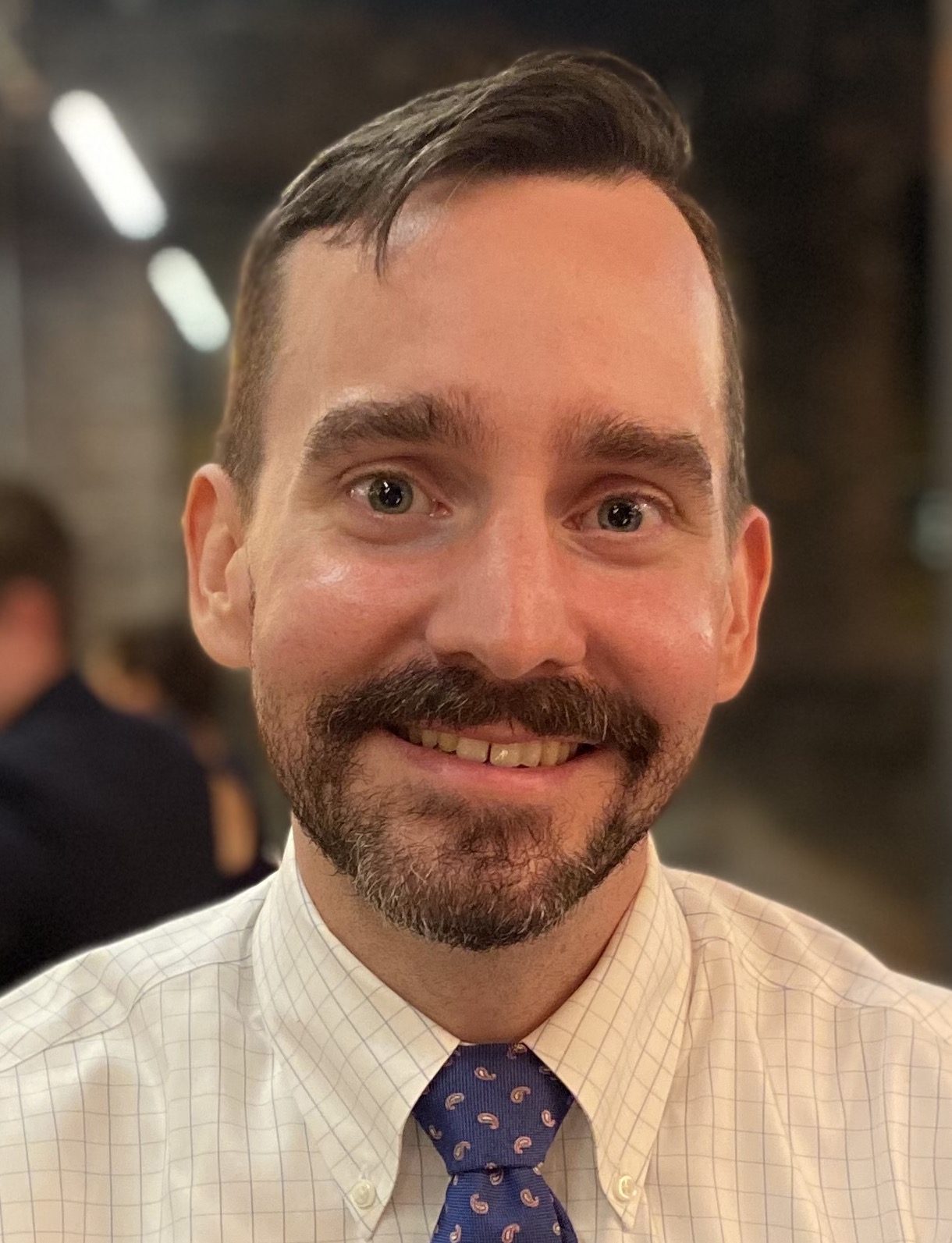 Daniel Oates is a Global Technology Policy Advisor and Team Lead for Multilateral Engagement in the Office of Multilateral Affairs, Bureau of Cyberspace and Digital Policy (CDP), at the U.S. Department of State. He represents the United States on digital economy and information and communication technology (ICT) policy in the Group of Seven (G7), Group of Twenty (G20), the International Telecommunication Union (ITU) and other international fora. He also focuses on emerging digital technology policy issues such as artificial intelligence (AI). Oates co-leads the State Department’s AI policy coordination group and has represented the Department on the U.S. National Science and Technology Council’s Subcommittee on Machine Learning and AI since 2016. Prior to the creation of the CDP Bureau in 2022, Oates worked on digital policy issues in the Economic Bureau (2013-2022), the Office of the Science and Technology Adviser to the Secretary of State (2010-2013), and has also served in the White House Office of Science and Technology Policy (2011). Oates has a Masters degree of Engineering and Public Policy from the University of Maryland, and a Bachelor’s degree in Physics and Mathematics from Indiana University. He also serves in his local community as President of the Calvert Hills Citizens Association.
Daniel Oates is a Global Technology Policy Advisor and Team Lead for Multilateral Engagement in the Office of Multilateral Affairs, Bureau of Cyberspace and Digital Policy (CDP), at the U.S. Department of State. He represents the United States on digital economy and information and communication technology (ICT) policy in the Group of Seven (G7), Group of Twenty (G20), the International Telecommunication Union (ITU) and other international fora. He also focuses on emerging digital technology policy issues such as artificial intelligence (AI). Oates co-leads the State Department’s AI policy coordination group and has represented the Department on the U.S. National Science and Technology Council’s Subcommittee on Machine Learning and AI since 2016. Prior to the creation of the CDP Bureau in 2022, Oates worked on digital policy issues in the Economic Bureau (2013-2022), the Office of the Science and Technology Adviser to the Secretary of State (2010-2013), and has also served in the White House Office of Science and Technology Policy (2011). Oates has a Masters degree of Engineering and Public Policy from the University of Maryland, and a Bachelor’s degree in Physics and Mathematics from Indiana University. He also serves in his local community as President of the Calvert Hills Citizens Association.
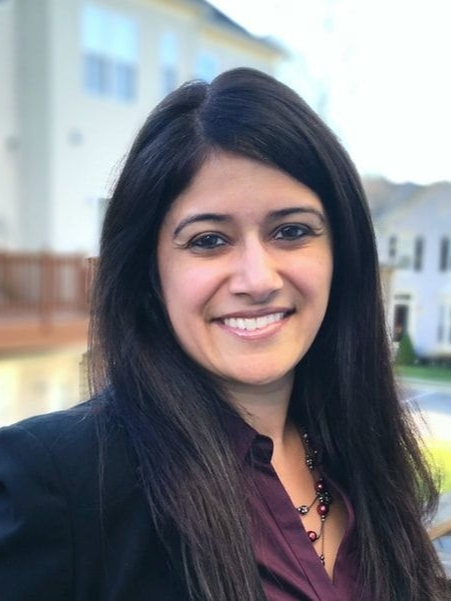 Kajal Pancholi serves as the President and Chief Executive Officer of Avatar Technologies, Inc. Founded in 2006, Avatar specializes in systems engineering, mission assurance and software development solutions for federal government and commercial customers in the defense, civilian aerospace and space exploration sectors.
Kajal Pancholi serves as the President and Chief Executive Officer of Avatar Technologies, Inc. Founded in 2006, Avatar specializes in systems engineering, mission assurance and software development solutions for federal government and commercial customers in the defense, civilian aerospace and space exploration sectors.
Pancholi is a licensed professional engineer with 15 years of space and defense industry experience as a business development executive, aerospace engineer, program manager, and quality assurance professional. Prior to her role at Avatar, she was Millennium Engineering and Integration Company’s Business Development and Marketing Director. In this role, she led Millennium’s proposal development and corporate marketing initiatives to include industry partnership negotiations, business opportunity pipeline management and marketing strategy.
Pancholi started her career as an aerospace engineer focused on infrared sensor development and flight testing for the U.S. Missile Defense Agency (MDA). She progressively supported various space and defense systems design, development, integration and testing projects for the MDA, NASA, Navy and Air Force. She has also helped establish and manage STEM Internship, Engineering Quality Management, and DoD Mentor-Protégé programs.
Pancholi has both Masters and Bachelor’s degrees in Aerospace Engineering from the University of Maryland, College Park. She currently serves on the University of Maryland’s Women In Engineering Advisory Board, supporting women and minorities in STEM fields.
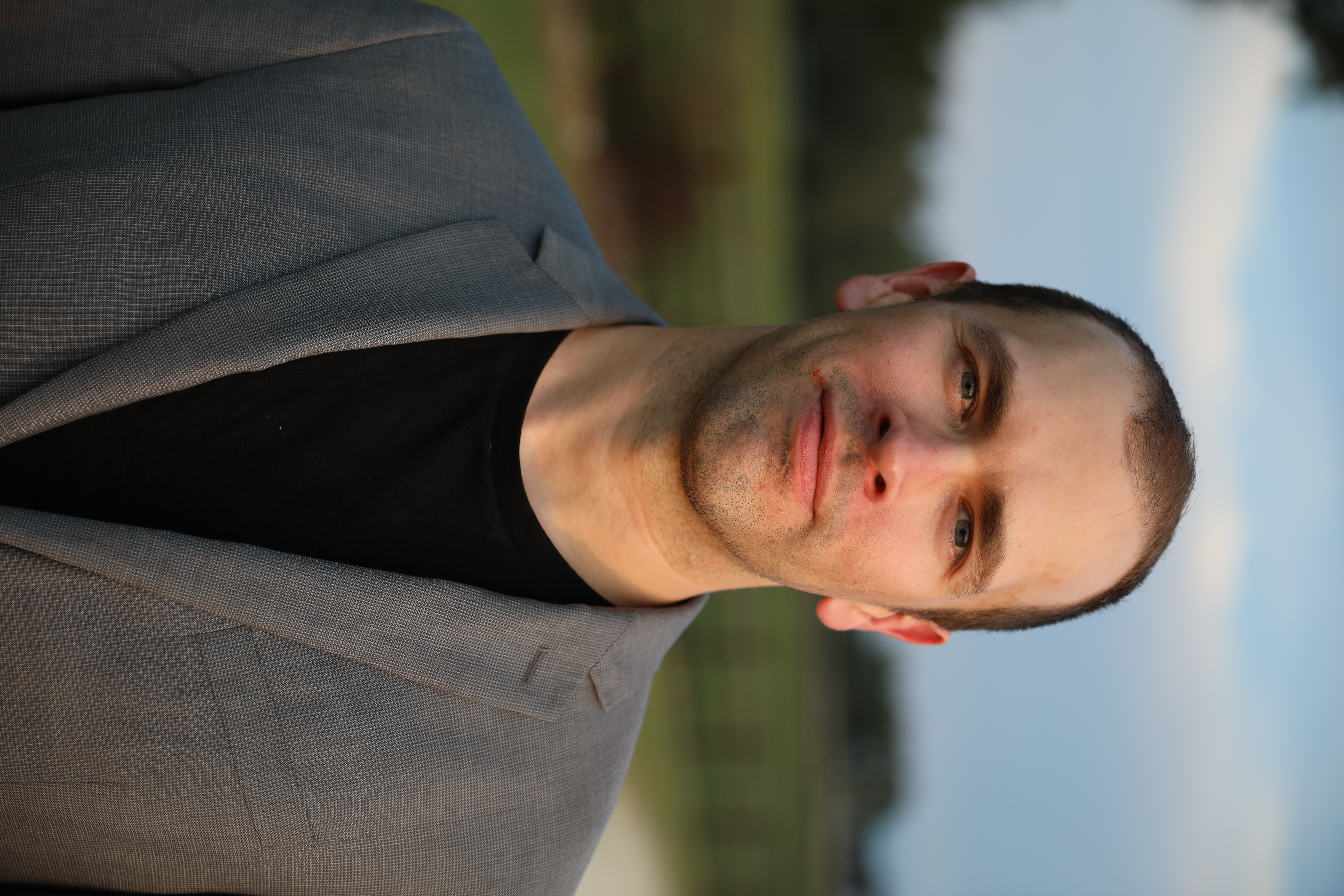
Edmon Perkins,Ph.D. is an assistant professor in the Mechanical & Aerospace Engineering Department and an affiliate faculty in the Music Department at North Carolina State University. Previously, he was an assistant professor in the Mechanical Engineering Department at Auburn University. He received a PhD in Mechanical Engineering from the University of Maryland, as well as a BS and MS in Mathematics from the University of Oklahoma. His research interests include nonlinear/stochastic systems, topology optimization, biomimetic systems, and music. Currently, he advises 6 PhD students and 7 undergraduates. He was awarded an Office of Naval Research Young Investigator Award in Nonlinear Physics (2019), a DARPA Young Faculty Award (2020), an Air Force Summer Faculty Fellowship (2019), and the ASME’s Haythornthwaite Research Initiation Grant (2017). Dr. Perkins has developed graduate classes on Nonlinear Dynamics and Music Engineering. He serves as an elected member of ASME’s Technical Committee on Vibration and Sound. He also serves as a fellow for the North Carolina Alliances for Graduate Education and the Professoriate (AGEP), which seeks to increase the number of underrepresented STEM faculty. As a PhD student, Dr. Perkins was supported as a Ford Foundation Dissertation Fellow, a Ford Foundation Predoctoral Fellow, a Sloan Minority PhD Program Scholar, and a Choctaw Nation for Higher Education Scholar.
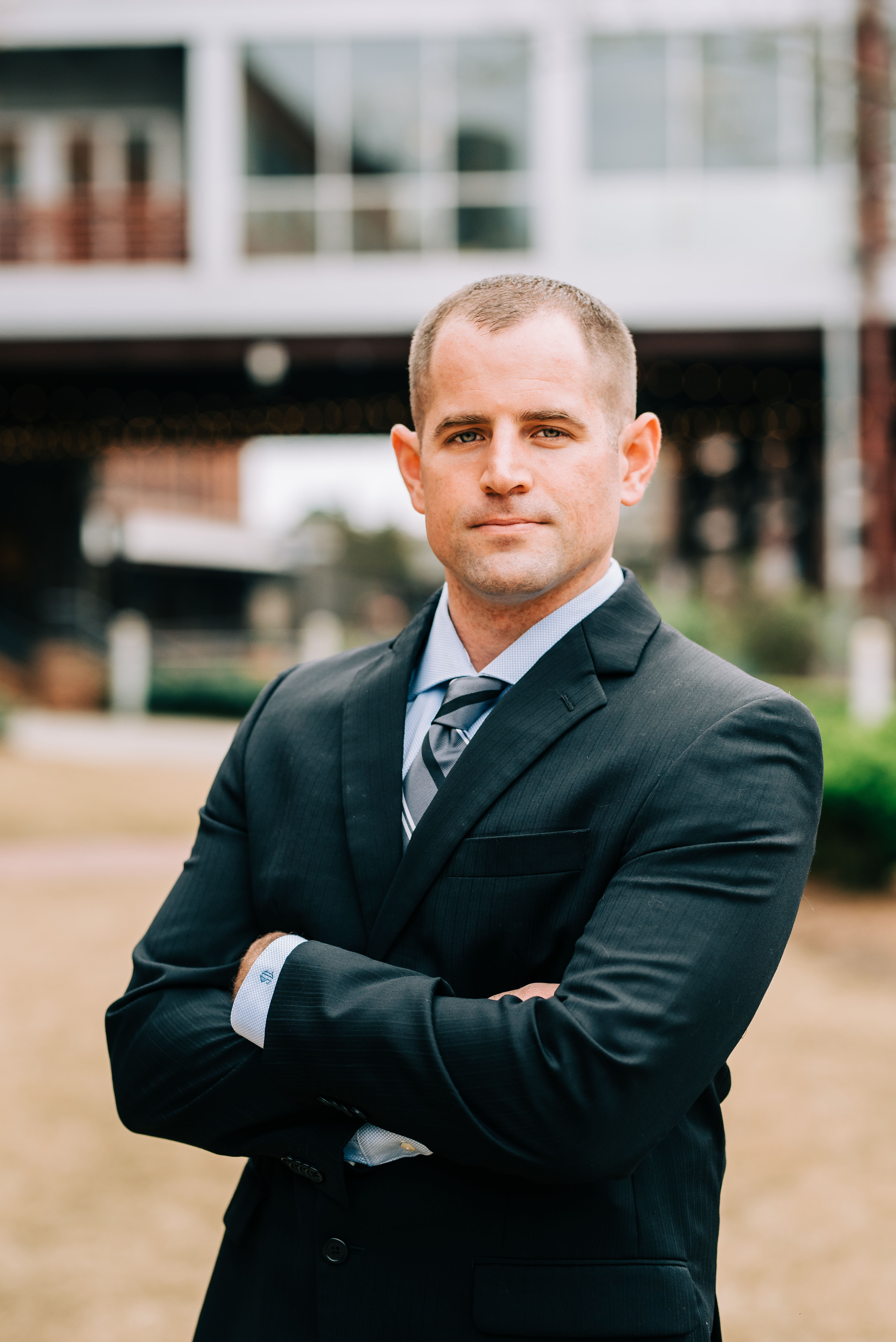 David Stacy, Principal & Founder of Performance Based Fire Protection Engineering, PLLC, has over a decade of experience in the fire protection field. His niche work type and skills in computational modeling are the basis of his consulting firm, specifically focusing on fire and egress modeling, performance based designs, Smoke Control Rational Analyses (SCRA), and Alternative Means & Methods (AM&M). Stacy has contributed to the Society of Fire Protection Engineers (SFPE) at two national conferences through presenting material on the advancement of computer fire modeling. He is a licensed fire protection engineer in multiple states, as well as multiple-state firm licensure.
David Stacy, Principal & Founder of Performance Based Fire Protection Engineering, PLLC, has over a decade of experience in the fire protection field. His niche work type and skills in computational modeling are the basis of his consulting firm, specifically focusing on fire and egress modeling, performance based designs, Smoke Control Rational Analyses (SCRA), and Alternative Means & Methods (AM&M). Stacy has contributed to the Society of Fire Protection Engineers (SFPE) at two national conferences through presenting material on the advancement of computer fire modeling. He is a licensed fire protection engineer in multiple states, as well as multiple-state firm licensure.
Stacy launched his firm in May of 2018 after working for a nationally recognized consulting firm. His company’s reputation and brand quickly grew, and hiring his first employee just before the first anniversary of the firm. Within year 2, his second employee was brought on board followed by 2 more employees within year 3. Stacy is maintaining the steady, yet consistent, growth of the firm in order to maintain technical excellence as himself, his employees, and the company continue to grow. In addition to mentoring and growing the firm, Stacy has also shared ownership opportunities and managerial responsibilities for all staff.
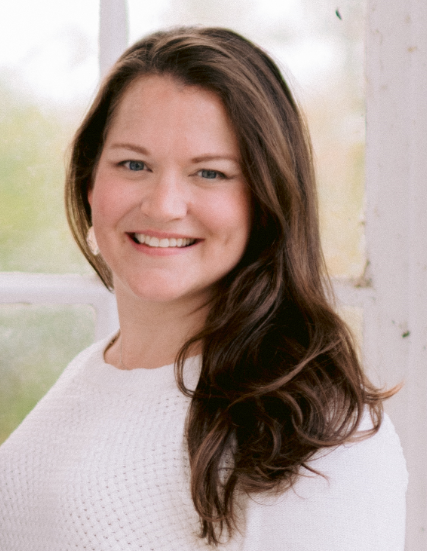
Kathy Weber has worked at Stanley Black and Decker since 2005. She started in their Manufacturing Management Development Programs working in Manufacturing (large equipment acquisition), Value Improvement Engineering (impactor value improvement), Sourcing Engineering (battery supplier management), and Marketing (securities innovation), before starting in New Product Development Engineering. In New Product development she had the opportunity to work on the development of one of the first DeWALT 20V tools. For the last 11 years she has worked in Reliability Engineering, managing fastening and sourced products in power tools, managing the new product quality on over 70 DeWALT power tools and products. Most recently, Weber has taken on the ambitious challenge of transforming the Reliability Engineering team of the Outdoor Products group at SBD. Starting from scratch, she has built the new reliability team in the outdoor group into a team that has delivered the lowest warranty to date in outdoor products. In addition and possibly the most challenging, Weber has managed the development of 3 North American test labs contributing to the initiative to grow North American Manufacturing in the group. She has also managed the merger of the testing and quality departments of 2 multi-billion-dollar companies. The new merged entity has a greatly expanded global footprint thanks to Weber’s leadership and initiatives.
 Nicholas Barrick is a Vice President and Discipline Manager for KCI Technologies, Inc.'s Site/Facilities Discipline overseeing Land Development, Building Structures, Landscape Architecture, Land Planning, and Wireless Telecommunications throughout the East Coast. His responsibilities include marketing and business development, operational and financial management, and staff development for the Site/Civil Land Development Practice, Building Structures Practice, Landscape Architecture, Land Planning Practice, and the Wireless Telecommunications Practice.
Nicholas Barrick is a Vice President and Discipline Manager for KCI Technologies, Inc.'s Site/Facilities Discipline overseeing Land Development, Building Structures, Landscape Architecture, Land Planning, and Wireless Telecommunications throughout the East Coast. His responsibilities include marketing and business development, operational and financial management, and staff development for the Site/Civil Land Development Practice, Building Structures Practice, Landscape Architecture, Land Planning Practice, and the Wireless Telecommunications Practice. 
 Lyndon Brown is an experienced technology executive focused on building high-growth cybersecurity companies. At Pondurance, as Chief Strategy Officer, he is responsible for Product Management, Corporate Development, Marketing, and driving cross-functional performance. Prior to joining Pondurance, Lyndon served as Vice President of Business Development at Mandiant (acquired by Google) where he focused on strategic growth initiatives. As an executive, Lyndon has successfully led product management, M&A, and global partnerships at firms such as Verodin (acquired by FireEye) and Endgame (acquired by Elastic).
Lyndon Brown is an experienced technology executive focused on building high-growth cybersecurity companies. At Pondurance, as Chief Strategy Officer, he is responsible for Product Management, Corporate Development, Marketing, and driving cross-functional performance. Prior to joining Pondurance, Lyndon served as Vice President of Business Development at Mandiant (acquired by Google) where he focused on strategic growth initiatives. As an executive, Lyndon has successfully led product management, M&A, and global partnerships at firms such as Verodin (acquired by FireEye) and Endgame (acquired by Elastic).  Gillian Bussey, Ph.D., is currently a special assistant to the US Air Force Chief Scientist advising on S&T matters.
Gillian Bussey, Ph.D., is currently a special assistant to the US Air Force Chief Scientist advising on S&T matters.  Kailyn Cage, Ph.D. is a Research Hardware Development Engineer at Amazon Lab126. She joined Lab126 in June of 2018 and has held a few different roles in the Hardware Engineering organization. Most recently, Dr. Cage returned to her roots as a Research Scientist. She focuses on new technology integration through experimental design, data collection and analysis for safety compliance. A foundational principle in Dr. Cage’s life is the philosophy of “Paying it Forward.” Her natural inclination for giving back is critical to the holistic advancement of society. This purview was imperative to the model framework that led to the Amazon Lab126 and University of Maryland, College Park (UMD) partnership with the initial pinnacle being the Lab126 Robotics Fellowship for minority graduate students. Dr. Cage holds three Mechanical Engineering related degrees, including a BS, MS, and PhD from UMD (BS, PhD) and The Ohio State University (MS), respectively. Her academic research investigated the intersection between product design and manufacturing, functional requirements, machine learning, and biomechanics. She completed her doctoral requirements in 2017 where her work introduced the concept “Interaction Variability.” Dr. Cage was recently promoted for her contributions to Amazon Devices Global Safety organization and the creation and application of new methodologies for Ultrasound Safety in Robotics and Design Driven FMEA’s for customers and safety. In her spare time, Dr. Cage enjoys mentoring young engineers, teaching financial literacy courses for non-profit organization, programming technology, and hosting hackathons (PGCode) for minority youth.
Kailyn Cage, Ph.D. is a Research Hardware Development Engineer at Amazon Lab126. She joined Lab126 in June of 2018 and has held a few different roles in the Hardware Engineering organization. Most recently, Dr. Cage returned to her roots as a Research Scientist. She focuses on new technology integration through experimental design, data collection and analysis for safety compliance. A foundational principle in Dr. Cage’s life is the philosophy of “Paying it Forward.” Her natural inclination for giving back is critical to the holistic advancement of society. This purview was imperative to the model framework that led to the Amazon Lab126 and University of Maryland, College Park (UMD) partnership with the initial pinnacle being the Lab126 Robotics Fellowship for minority graduate students. Dr. Cage holds three Mechanical Engineering related degrees, including a BS, MS, and PhD from UMD (BS, PhD) and The Ohio State University (MS), respectively. Her academic research investigated the intersection between product design and manufacturing, functional requirements, machine learning, and biomechanics. She completed her doctoral requirements in 2017 where her work introduced the concept “Interaction Variability.” Dr. Cage was recently promoted for her contributions to Amazon Devices Global Safety organization and the creation and application of new methodologies for Ultrasound Safety in Robotics and Design Driven FMEA’s for customers and safety. In her spare time, Dr. Cage enjoys mentoring young engineers, teaching financial literacy courses for non-profit organization, programming technology, and hosting hackathons (PGCode) for minority youth. Marc Dandin, Ph.D., is an Assistant Professor in the Department of Electrical and Computer Engineering at Carnegie Mellon University where he also holds a courtesy appointment in the Biomedical Engineering Department. Previously, he was an Adjunct Professor of Electrical and Computer Engineering at the George Washington University in Washington, DC. He is a technology entrepreneur and the founding President and Chief Executive Officer of Kiskeya Microsystems LLC, an investor-funded technology start-up that developed microsystems for point-of-care HIV diagnostics in resource-limited settings. Dr. Dandin is an inventor on several U.S. patent applications assigned to Kiskeya Microsystems.
Marc Dandin, Ph.D., is an Assistant Professor in the Department of Electrical and Computer Engineering at Carnegie Mellon University where he also holds a courtesy appointment in the Biomedical Engineering Department. Previously, he was an Adjunct Professor of Electrical and Computer Engineering at the George Washington University in Washington, DC. He is a technology entrepreneur and the founding President and Chief Executive Officer of Kiskeya Microsystems LLC, an investor-funded technology start-up that developed microsystems for point-of-care HIV diagnostics in resource-limited settings. Dr. Dandin is an inventor on several U.S. patent applications assigned to Kiskeya Microsystems.  Katie Edwards is the Deputy Director of Aviation Safety & Regulatory Affairs in Washington D.C. at The Boeing Company. This position integrates Boeing core engineering with the Government Operations team and collaborates with numerous external stakeholders on regulatory and safety topics that impact the business. She focuses on commercial products within the legislative affairs team. Edwards also represents Boeing on the leadership team for the Radio Technical Commission for Aeronautics (RTCA) Special Committee 228, Minimum Performance Standards for Unmanned Aircraft Systems.
Katie Edwards is the Deputy Director of Aviation Safety & Regulatory Affairs in Washington D.C. at The Boeing Company. This position integrates Boeing core engineering with the Government Operations team and collaborates with numerous external stakeholders on regulatory and safety topics that impact the business. She focuses on commercial products within the legislative affairs team. Edwards also represents Boeing on the leadership team for the Radio Technical Commission for Aeronautics (RTCA) Special Committee 228, Minimum Performance Standards for Unmanned Aircraft Systems.  Rose T. Faghih, Ph.D., is an associate professor of Biomedical Engineering at the New York University (NYU). Prior to joining NYU, she was an assistant professor of Electrical and Computer Engineering at the University of Houston. She received a bachelor’s degree (summa cum laude) in Electrical Engineering (Honors Program Citation) from the University of Maryland, and S.M. and Ph.D. degrees in Electrical Engineering and Computer Science with a minor in Mathematics from MIT, all with perfect GPAs. Dr. Faghih completed her postdoctoral training at the Department of Brain and Cognitive Sciences and the Picower Institute for Learning and Memory at MIT as well as the Department of Anesthesia, Critical Care and Pain Medicine at the Massachusetts General Hospital. Dr. Faghih is the recipient of various awards including an MIT Technology Review 2020 Innovator Under 35 award, a 2020 National Science Foundation CAREER Award, a 2020 Research Excellence award as well as a 2020 Teaching Excellence Award from the University of Houston's Cullen College of Engineering, a 2016 IEEE-USA New Face of Engineering award, a National Science Foundation Graduate Research Fellowship, an MIT Graduate Fellowship, and the University of Maryland's Department of Electrical and Computer Engineering Chair's Award. Moreover, Dr. Faghih was selected by the National Academy of Engineering for the 2019 U.S. Frontiers of Engineering Symposium. In 2020, Dr. Faghih was featured by the IEEE Women in Engineering Magazine as a “Woman to Watch”. Furthermore, she has been inducted into various honor societies including Phi Kappa Phi, Tau Beta Pi, and Eta Kappa Nu.
Rose T. Faghih, Ph.D., is an associate professor of Biomedical Engineering at the New York University (NYU). Prior to joining NYU, she was an assistant professor of Electrical and Computer Engineering at the University of Houston. She received a bachelor’s degree (summa cum laude) in Electrical Engineering (Honors Program Citation) from the University of Maryland, and S.M. and Ph.D. degrees in Electrical Engineering and Computer Science with a minor in Mathematics from MIT, all with perfect GPAs. Dr. Faghih completed her postdoctoral training at the Department of Brain and Cognitive Sciences and the Picower Institute for Learning and Memory at MIT as well as the Department of Anesthesia, Critical Care and Pain Medicine at the Massachusetts General Hospital. Dr. Faghih is the recipient of various awards including an MIT Technology Review 2020 Innovator Under 35 award, a 2020 National Science Foundation CAREER Award, a 2020 Research Excellence award as well as a 2020 Teaching Excellence Award from the University of Houston's Cullen College of Engineering, a 2016 IEEE-USA New Face of Engineering award, a National Science Foundation Graduate Research Fellowship, an MIT Graduate Fellowship, and the University of Maryland's Department of Electrical and Computer Engineering Chair's Award. Moreover, Dr. Faghih was selected by the National Academy of Engineering for the 2019 U.S. Frontiers of Engineering Symposium. In 2020, Dr. Faghih was featured by the IEEE Women in Engineering Magazine as a “Woman to Watch”. Furthermore, she has been inducted into various honor societies including Phi Kappa Phi, Tau Beta Pi, and Eta Kappa Nu. Morteza Farajian, Ph.D., has served as executive director of the Build America Bureau at US Department of Transportation since 2019. In this role he leads USDOT's credit programs and loan guarantees to support development of large-scale and multimodal transportation projects with approximately $30 billion in existing loans and an additional $110 billion in available lending capacity. The Bureau also promotes innovative project financing solutions such as Public-Private Partnerships (P3s) and helps state and local governments develop capacity to procure and finance P3 transactions for transportation facilities. He serves as Chair of Credit Review Team and a member of the Council on Credit and Finance overseeing risk monitoring, both at project level and portfolio level, during design and implementation, and where needed. Dr. Farajian also ensures effective mitigation of strategic, operational and/or reputational risks to the Bureau and USDOT.
Morteza Farajian, Ph.D., has served as executive director of the Build America Bureau at US Department of Transportation since 2019. In this role he leads USDOT's credit programs and loan guarantees to support development of large-scale and multimodal transportation projects with approximately $30 billion in existing loans and an additional $110 billion in available lending capacity. The Bureau also promotes innovative project financing solutions such as Public-Private Partnerships (P3s) and helps state and local governments develop capacity to procure and finance P3 transactions for transportation facilities. He serves as Chair of Credit Review Team and a member of the Council on Credit and Finance overseeing risk monitoring, both at project level and portfolio level, during design and implementation, and where needed. Dr. Farajian also ensures effective mitigation of strategic, operational and/or reputational risks to the Bureau and USDOT.  Imraan A. Faruque, Ph.D.’s specialization is in the dynamics and control of aerospace vehicles, particularly those needing robust performance during tight constraints on computational power or GPS-denied navigation.
Imraan A. Faruque, Ph.D.’s specialization is in the dynamics and control of aerospace vehicles, particularly those needing robust performance during tight constraints on computational power or GPS-denied navigation. Jeffrey Gair Jr., Ph.D., is the Founder of Scinetics, Inc., a research and development corporation focused on launching socially-minded, deep-tech ventures. His most recent venture is Modular Matter, Inc., which is building an ultra-comfortable, low-cost prosthesis socket.
Jeffrey Gair Jr., Ph.D., is the Founder of Scinetics, Inc., a research and development corporation focused on launching socially-minded, deep-tech ventures. His most recent venture is Modular Matter, Inc., which is building an ultra-comfortable, low-cost prosthesis socket. Kyle Gluesenkamp, Ph.D., is a Senior R&D Scientist at the US Department of Energy’s Oak Ridge National Laboratory (ORNL), where he serves as ORNL’s Subprogram Manager for HVAC Equipment. He is an influential leader in research on efficient equipment for buildings, with 15 years of experience and deep expertise in sorption technologies, thermal storage and phase change materials, residential appliances (clothes dryers and dishwashers), heat pumps, heat transfer, psychrometrics, and experimental prototype evaluation. He has published 2 book chapters, 48 peer-reviewed journal articles, more than 90 conference articles and reports, and has 4 granted patents.
Kyle Gluesenkamp, Ph.D., is a Senior R&D Scientist at the US Department of Energy’s Oak Ridge National Laboratory (ORNL), where he serves as ORNL’s Subprogram Manager for HVAC Equipment. He is an influential leader in research on efficient equipment for buildings, with 15 years of experience and deep expertise in sorption technologies, thermal storage and phase change materials, residential appliances (clothes dryers and dishwashers), heat pumps, heat transfer, psychrometrics, and experimental prototype evaluation. He has published 2 book chapters, 48 peer-reviewed journal articles, more than 90 conference articles and reports, and has 4 granted patents.  Katrina M. Groth, Ph.D., is an early career professional with a distinguished set of contributions to the fields of reliability engineering, system safety, and risk assessment. Groth is an Associate Professor in Mechanical Engineering at the University of Maryland and the associate director for research for UMD's Center for Risk and Reliability. Groth has a unique distinction as one of the few UMD faculty members who is also a three-time alumnae of UMD. She received her B.S. in Engineering (nuclear focus) in 2004, her M.S. and Ph.D. in Reliability Engineering in 2008 and 2009 respectively.
Katrina M. Groth, Ph.D., is an early career professional with a distinguished set of contributions to the fields of reliability engineering, system safety, and risk assessment. Groth is an Associate Professor in Mechanical Engineering at the University of Maryland and the associate director for research for UMD's Center for Risk and Reliability. Groth has a unique distinction as one of the few UMD faculty members who is also a three-time alumnae of UMD. She received her B.S. in Engineering (nuclear focus) in 2004, her M.S. and Ph.D. in Reliability Engineering in 2008 and 2009 respectively. 
 Chris Huie-Spence began working in the pioneering industry of commercial human spaceflight at Virgin Galactic (VG) in 2016 as a Loads and Simulation Engineer. Now, as the Flight Sciences Senior Loads Manager, Huie-Spence is a member of Virgin Galactic’s technical leadership team based in Southern California.
Chris Huie-Spence began working in the pioneering industry of commercial human spaceflight at Virgin Galactic (VG) in 2016 as a Loads and Simulation Engineer. Now, as the Flight Sciences Senior Loads Manager, Huie-Spence is a member of Virgin Galactic’s technical leadership team based in Southern California.  Steve Kerber is Vice President and Executive Director of UL's Fire Safety Research Institute (FSRI). He leads a fire safety research team dedicated to addressing the world's unresolved fire safety risks and emerging dangers to reduce death, injury and loss from fire. Kerber has led research in the areas of fire safety engineering, firefighter safety, fire forensics, and fire science. He received his bachelor’s and master’s degrees in fire protection engineering from the University of Maryland and completed his doctorate at Lund University in Sweden after defending his thesis titled, "Utilizing Research to Enhance Fire Service Knowledge." Kerber is also a 13-year veteran of the fire service, with most of his service at the College Park Fire Department in Prince George's County Maryland where he served at ranks up through Deputy Chief. He has also been appointed to the rank of Honorary Battalion Chief by the Fire Department of New York, was named the 2014 ISFSI and Fire Engineering George D. Post Instructor of the Year and was awarded the 2019 Metropolitan Fire Chiefs President’s Award of Distinction.
Steve Kerber is Vice President and Executive Director of UL's Fire Safety Research Institute (FSRI). He leads a fire safety research team dedicated to addressing the world's unresolved fire safety risks and emerging dangers to reduce death, injury and loss from fire. Kerber has led research in the areas of fire safety engineering, firefighter safety, fire forensics, and fire science. He received his bachelor’s and master’s degrees in fire protection engineering from the University of Maryland and completed his doctorate at Lund University in Sweden after defending his thesis titled, "Utilizing Research to Enhance Fire Service Knowledge." Kerber is also a 13-year veteran of the fire service, with most of his service at the College Park Fire Department in Prince George's County Maryland where he served at ranks up through Deputy Chief. He has also been appointed to the rank of Honorary Battalion Chief by the Fire Department of New York, was named the 2014 ISFSI and Fire Engineering George D. Post Instructor of the Year and was awarded the 2019 Metropolitan Fire Chiefs President’s Award of Distinction. Fatema Kothari is the Director for Operations & Strategy for Microsoft's Airband Initiative within the Technology & Corporate Responsibility organization. She leads Airband’s global operations to expand internet connectivity to unserved communities through partnerships across 5 continents.
Fatema Kothari is the Director for Operations & Strategy for Microsoft's Airband Initiative within the Technology & Corporate Responsibility organization. She leads Airband’s global operations to expand internet connectivity to unserved communities through partnerships across 5 continents.  Brandon Lester is a Senior Defense and Intelligence Technology Strategist at Microsoft. He serves as the Virtual Chief Technology Officer (CTO) to USINDOPACOM Joint Forces and Air Force, Army, Navy, Marine Corps in the Indo-Pacific theater. In this role, he is at the forefront of digital transformation efforts in the Department of Defense and Intelligence Community. He focuses on supporting national security priorities and desired outcomes to orchestrate Microsoft’s resources to support the United States.
Brandon Lester is a Senior Defense and Intelligence Technology Strategist at Microsoft. He serves as the Virtual Chief Technology Officer (CTO) to USINDOPACOM Joint Forces and Air Force, Army, Navy, Marine Corps in the Indo-Pacific theater. In this role, he is at the forefront of digital transformation efforts in the Department of Defense and Intelligence Community. He focuses on supporting national security priorities and desired outcomes to orchestrate Microsoft’s resources to support the United States.  Nefretiti Nassar is the bestselling author of “Play It to Win: Strategies for Millennials Starting in Corporate America.” Having ranked #1 in Amazon’s New Releases for four consecutive weeks, the career development counseling book guides young professionals to identify and navigate the unwritten rules of the workplace. Nassar has also published many engineering research papers in addition to achieving a number of honors, for example, the Hiram Whittle Legacy Award from the University of Maryland and selection as a U.S. Presidential Management Fellows Program Finalist.
Nefretiti Nassar is the bestselling author of “Play It to Win: Strategies for Millennials Starting in Corporate America.” Having ranked #1 in Amazon’s New Releases for four consecutive weeks, the career development counseling book guides young professionals to identify and navigate the unwritten rules of the workplace. Nassar has also published many engineering research papers in addition to achieving a number of honors, for example, the Hiram Whittle Legacy Award from the University of Maryland and selection as a U.S. Presidential Management Fellows Program Finalist.  Grace O’Connell, Ph.D. is an associate professor in the Department of Mechanical Engineering at the University of California, Berkeley. She is the co-director of the Berkeley Biomechanics Laboratory, and her research interests are in soft tissue mechanobiology and tissue engineering. O’Connell received a PhD in Bioengineering from the University of Pennsylvania in 2009, where her research focused on intervertebral disc biomechanics with age, degeneration, and injury. O’Connell’s research group focuses on tissue and joint-level intervertebral disc mechanobiology, utilizing experimental and computational techniques to understand disease progression and tissue failure. Her research has innovated multi-scale structure-based modeling of biological composite materials, greatly increasing the accuracy and ability of finite element models to predict mechanical behavior of the spine with age and degeneration. Her research will have broader implications in medicine, as lower back pain results in the second leading cause for physical disability in Americans. She has received many awards for her research including the 2019 YC Fung Young Investigator Award, NSF CAREER Award.
Grace O’Connell, Ph.D. is an associate professor in the Department of Mechanical Engineering at the University of California, Berkeley. She is the co-director of the Berkeley Biomechanics Laboratory, and her research interests are in soft tissue mechanobiology and tissue engineering. O’Connell received a PhD in Bioengineering from the University of Pennsylvania in 2009, where her research focused on intervertebral disc biomechanics with age, degeneration, and injury. O’Connell’s research group focuses on tissue and joint-level intervertebral disc mechanobiology, utilizing experimental and computational techniques to understand disease progression and tissue failure. Her research has innovated multi-scale structure-based modeling of biological composite materials, greatly increasing the accuracy and ability of finite element models to predict mechanical behavior of the spine with age and degeneration. Her research will have broader implications in medicine, as lower back pain results in the second leading cause for physical disability in Americans. She has received many awards for her research including the 2019 YC Fung Young Investigator Award, NSF CAREER Award.  Daniel Oates is a Global Technology Policy Advisor and Team Lead for Multilateral Engagement in the Office of Multilateral Affairs, Bureau of Cyberspace and Digital Policy (CDP), at the U.S. Department of State. He represents the United States on digital economy and information and communication technology (ICT) policy in the Group of Seven (G7), Group of Twenty (G20), the International Telecommunication Union (ITU) and other international fora. He also focuses on emerging digital technology policy issues such as artificial intelligence (AI). Oates co-leads the State Department’s AI policy coordination group and has represented the Department on the U.S. National Science and Technology Council’s Subcommittee on Machine Learning and AI since 2016. Prior to the creation of the CDP Bureau in 2022, Oates worked on digital policy issues in the Economic Bureau (2013-2022), the Office of the Science and Technology Adviser to the Secretary of State (2010-2013), and has also served in the White House Office of Science and Technology Policy (2011). Oates has a Masters degree of Engineering and Public Policy from the University of Maryland, and a Bachelor’s degree in Physics and Mathematics from Indiana University. He also serves in his local community as President of the Calvert Hills Citizens Association.
Daniel Oates is a Global Technology Policy Advisor and Team Lead for Multilateral Engagement in the Office of Multilateral Affairs, Bureau of Cyberspace and Digital Policy (CDP), at the U.S. Department of State. He represents the United States on digital economy and information and communication technology (ICT) policy in the Group of Seven (G7), Group of Twenty (G20), the International Telecommunication Union (ITU) and other international fora. He also focuses on emerging digital technology policy issues such as artificial intelligence (AI). Oates co-leads the State Department’s AI policy coordination group and has represented the Department on the U.S. National Science and Technology Council’s Subcommittee on Machine Learning and AI since 2016. Prior to the creation of the CDP Bureau in 2022, Oates worked on digital policy issues in the Economic Bureau (2013-2022), the Office of the Science and Technology Adviser to the Secretary of State (2010-2013), and has also served in the White House Office of Science and Technology Policy (2011). Oates has a Masters degree of Engineering and Public Policy from the University of Maryland, and a Bachelor’s degree in Physics and Mathematics from Indiana University. He also serves in his local community as President of the Calvert Hills Citizens Association. Kajal Pancholi serves as the President and Chief Executive Officer of Avatar Technologies, Inc. Founded in 2006, Avatar specializes in systems engineering, mission assurance and software development solutions for federal government and commercial customers in the defense, civilian aerospace and space exploration sectors.
Kajal Pancholi serves as the President and Chief Executive Officer of Avatar Technologies, Inc. Founded in 2006, Avatar specializes in systems engineering, mission assurance and software development solutions for federal government and commercial customers in the defense, civilian aerospace and space exploration sectors. 
 David Stacy, Principal & Founder of Performance Based Fire Protection Engineering, PLLC, has over a decade of experience in the fire protection field. His niche work type and skills in computational modeling are the basis of his consulting firm, specifically focusing on fire and egress modeling, performance based designs, Smoke Control Rational Analyses (SCRA), and Alternative Means & Methods (AM&M). Stacy has contributed to the Society of Fire Protection Engineers (SFPE) at two national conferences through presenting material on the advancement of computer fire modeling. He is a licensed fire protection engineer in multiple states, as well as multiple-state firm licensure.
David Stacy, Principal & Founder of Performance Based Fire Protection Engineering, PLLC, has over a decade of experience in the fire protection field. His niche work type and skills in computational modeling are the basis of his consulting firm, specifically focusing on fire and egress modeling, performance based designs, Smoke Control Rational Analyses (SCRA), and Alternative Means & Methods (AM&M). Stacy has contributed to the Society of Fire Protection Engineers (SFPE) at two national conferences through presenting material on the advancement of computer fire modeling. He is a licensed fire protection engineer in multiple states, as well as multiple-state firm licensure. 